




he was the longest-serving special counsel in U.S. history.
He had a monumental task: to investigate allegations of wrongdoing by the most powerful law enforcement agency in the country, as well as the involvement of a presidential campaign.
What John Durham delivered in the end was a more than 300-page report detailing exactly that.
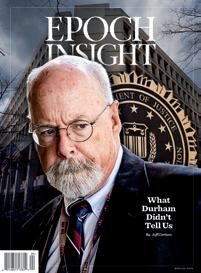
In his report, Durham describes in great detail how a full investigation was opened without evidence, the flaws in that investigation, and how the FBI has been plagued by what he calls “institutional bias.”
He also confirmed that the FBI relied on false information provided by Hillary Clinton’s 2016 presidential campaign, namely through the socalled Steele dossier, in starting the investigation of presidential candidate and later President Donald Trump.
Where Durham falls short, however, is in making meaningful referrals for prosecution or reforms that would fix the fundamental problems at the FBI.
In this week’s cover story, “Truth Over News” host Jeff Carlson, who has been following the story of Russiagate since the very beginning, breaks down exactly what Durham didn’t do.

He touches on the key investigative topics that were within the special counsel’s purview yet were not pursued.
What Durham ultimately leaves the country with is a report that fundamentally disproves the Trump–Russia collusion narrative and exposes the high-stakes impact of politicization at the FBI, without any action attached to it.
This means there is nothing stopping the FBI from pursuing similar actions against Trump as he runs again for president in 2024.
JASPER FAKKERT EDITOR-IN-CHIEFCHANNALY
PHILIPP LIFE&
TRADITION, TRAVEL EDITORCHRISY TRUDEAU
MIND & BODY EDITOR
CRYSTAL SHI
HOME, FOOD EDITOR
SHARON KILARSKI ARTS & CULTURE EDITOR
BILL LINDSEY LUXURY EDITOR
FEI MENG, BIBA KAYEWICH ILLUSTRATORS
SHANSHAN HU PRODUCTION
CONTACT US
THE EPOCH TIMES ASSOCIATION INC. 229 W.28TH ST., FL.7 NEW YORK, NY 10001
SUBSCRIPTIONS
READEPOCHINSIGHT.COM
GENERAL INQUIRIES, LETTERS TO THE EDITOR HELP.THEEPOCHTIMES.COM
ADVERTISING
ADVERTISENOW@EPOCHTIMES.COM
(USPS21-800) IS PUBLISHED WEEKLY BY THE EPOCH MEDIA GROUP, 9550 FLAIR DR. SUITE 411, EL MONTE, CA 91731-2922. PERIODICAL POSTAGE PAID AT EL MONTE, CA, AND ADDITIONAL MAILING OFFICES.
POSTMASTER: SEND ADDRESS CHANGES TO THE EPOCH TIMES, 229 W. 28TH STREET, FLOOR 5, NEW YORK, NY 10001.
Jasper Fakkert Editor-in-chief
The Durham report is deeply flawed, providing little new information and no accountability.ILLUSTRATION BY THE EPOCH TIMES, TENG CHEN FOR THE EPOCH TIMES, MADALINA VASILIU/THE EPOCH TIMES
34 | Illegal Minors
Challenges arise from unaccompanied children and youth illegally entering the United States.
38 | EU–African Relationship
Germany is seeking to resuscitate the EU’s waning presence in Africa.
44 | Retirement
Concerns
Millions of Americans aged 56 to 64 are nearing retirement without any savings.
46 | Power of Faith
Falun Gong adherents share their experiences of learning truthfulness, compassion, and tolerance.
56 | The Federal Reserve
Jay Powell assumes the role of an anti-hero on the Washington stage.
57 | US–China Relations
The United States needs G-7 support to defeat communist China’s aggression.
58 | Debt Limit
Even if Washington hits the debt ceiling, the dreaded default will not occur.
59 | Power Plant Rules
Business leaders say Biden’s climate measures “go too far, too fast.”
14 |
It’s what the report doesn’t cover that tells us the most.
20 | Biden Business
A look at new revelations on the Biden family’s overseas business dealings.
30 | Robots in War
The CCP is investing heavily in the development of AI capabilities to fight future battles.
52 | Border Crisis
A Border Patrol officer shares his encounter with illegal immigrants as Title 42 ends.
A boy wearing a vyshyvanka, a Ukrainian embroidered blouse, holds pigeons on Vyshyvanka Day, an annual holiday that celebrates the traditional clothing, at Independence Square in Kyiv, Ukraine, on May 18.

60 | Banking Crisis
European banks aren’t immune to the turmoil in U.S. banking.
61 | Investment
What should investors do if the debt ceiling fight escalates?
62 | China’s Unconventional War
A discussion about the CCP’s chemical warfare, maritime militia, and plans for Taiwan.
68 | From Despair to Success
How we face and overcome adversity defines our character.
70 | Your Own ‘Yellowstone’
Why simply watch a TV ranch drama when you can live it?
72 | Tropical Splendor
Set on the Andaman Sea, Trisara is Phuket’s most exclusive resort.
76 | Father’s Day
A selection of gift ideas to show Dad your love on his special day.
80 | Pour Your Own
Come explore the many ways you can actually become a winemaker.
83 | Swimmingly Good Manners
Let’s review pool party manners before diving into the water.

A VIEW OF ATHLETES DURING THE 2023 IRONMAN 70.3 Gulf Coast in Panama City Beach, Fla., on May 13. IRONMAN 70.3 is a half Ironman-distance triathlon consisting of a swim in the Gulf of Mexico, a bike ride through the woods, and a run course along the coast. The next events will be held in Morro Bay, Calif., on May 20 and in Chattanooga, Tenn., and Tulsa, Okla., on May 21.
 PHOTO BY JULIO AGUILAR/GETTY IMAGES FOR IRONMAN
PHOTO BY JULIO AGUILAR/GETTY IMAGES FOR IRONMAN


Attorneys general from 23 states have requested information from 28 insurance companies regarding possible U.S. antitrust law violations by the insurers.
The FBI conducted 8,000 queries on U.S. citizens’ digital data in 2021 and 2022 despite having no warrant, according to an internal audit.
$3 BILLION
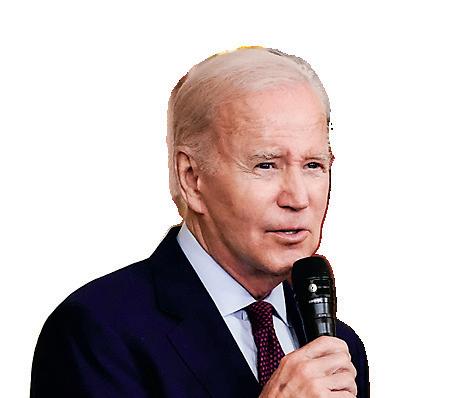
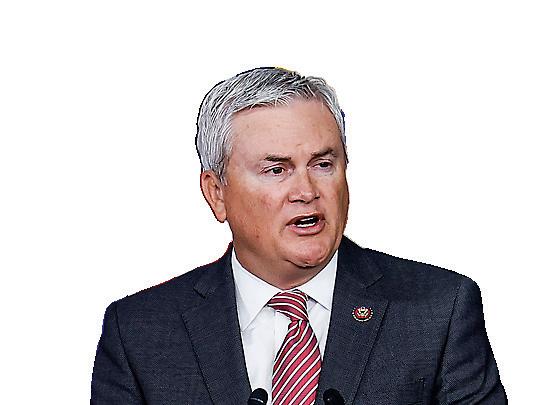
The value of military aid sent by the United States to Ukraine was overestimated by at least $3 billion owing to an accounting mistake by the Pentagon, Defense Department officials say.
1 MILLION
The IRS has flagged more than 1 million 2022 tax returns for additional review over potential identity fraud, according to a report.
61% More than two-thirds of Americans are concerned about the negative effects of artificial intelligence, with 61 percent believing the technology could threaten civilization, according to a Reuters/Ipsos poll.
“Dark money organizations are attempting to intimidate congressional investigators who are shining a light on the Biden family’s shady business schemes.”
“The nation has never defaulted on its debt, and it never will.”
PresidentJoe Biden, saying ahead of an overseas trip that he’s optimistic that an agreement on federal spending priorities will be reached in the coming days.
MASSACHUSETTS
THE U.S. ATTORNEY for Massachusetts lied about helping a Democrat candidate in a contested local primary, a watchdog reported in a report.
U.S. Attorney for the District of Massachusetts Rachael Rollins, a Biden appointee, helped Ricardo Arroyo win the 2022 Democratic primary for Suffolk County district attorney, the U.S. Department of Justice’s Office of Inspector General said in the report.
THE U.S. SUPREME COURT has decided to allow Illinois’s strict new gun control law to remain in effect, denying an emergency request for an injunction.

It means that the measure, which places bans on what it calls “assault weapons,” will remain intact while lower courts deliberate on the matter. An Illinois gun store owner filed a petition with the high court to block the ban on a range of firearms, as well as ammunition magazines that hold more than 10 rounds.
Currently, the U.S. Court of Appeals for the 7th Circuit is considering the gun store owner’s case against the state. The Chicago-based court hasn’t yet issued a final ruling on the law, although the decision will likely be appealed, regardless of the outcome.

A FEDERAL JUDGE has issued a preliminary restraining order against the Biden administration’s “parole with conditions” policy that would allow U.S. authorities to release illegal immigrants into the country without a court date.
Judge T. Kent Wetherell found that Florida would suffer “irreparable harm” without the injunction.
“Florida is entitled to a preliminary injunction prohibiting DHS (Department of Homeland Security) from ‘paroling’ aliens into the country under the Parole with Conditions policy,” the judge wrote in his ruling.
9.
Rollins, who was district attorney before becoming a U.S. attorney, provided Arroyo with “campaign advice and direction” in addition to coordinating with him on activities to help his campaign, investigators found.
Rollins exchanged more than 380 messages with Arroyo leading up to the primary, including some in which she criticized interim District Attorney Kevin Hayden, Arroyo’s Democrat opponent.
FLORIDA
FLORIDA GOV. RON DESANTIS has signed five bills into law that he says are designed to “let kids be kids,” including one measure that outlaws transgender surgery and puberty blockers for minors.
DeSantis’s actions also ban the presence of minors at sexually explicit entertainment such as drag shows, and restricts what he called “the pronoun Olympics” in Florida schools.
Another measure keeps biological men out of women’s locker rooms, restrooms, and correctional or juvenile facilities.
Another of the new laws expands the access of students outside the traditional public school system—including private, virtual, and homeschooled students—to school sports.
EUROPEAN UNION FOREIGN POLICY chief Josep Borrell has proposed adding 3.5 billion euros ($3.85 billion) to a fund used to finance military aid for Ukraine, EU sources said.
The sources, speaking on condition of anonymity, said Borrell had asked EU governments to raise the financial ceiling on the European Peace Facility, a fund that has already allocated some 4.6 billion euros in military aid for Ukraine.
THE NATIONAL INSTITUTES OF HEALTH has quietly removed the Wuhan lab suspected of being a source of COVID-19 from its list of foreign facilities eligible to conduct animal experiments on taxpayer dollars.
The name Wuhan Institute of Virology, which was listed as recently as April 23, was absent from the page as of May 17. The current list includes 27 other laboratories in China.
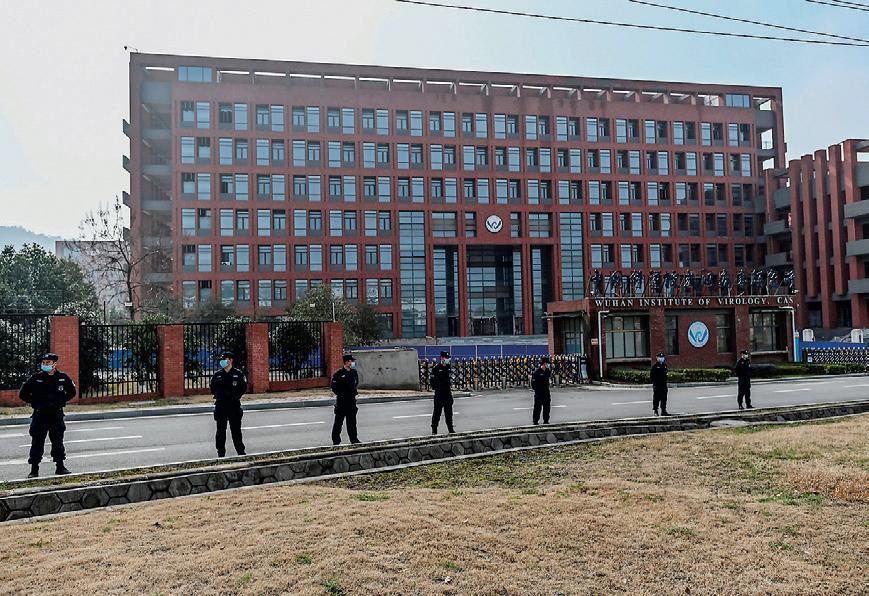
The Wuhan lab has for years been a partner of New York-based EcoHealth Alliance, conducting bat coronavirus research with U.S. funding, which totaled more than $3 million between 2014 and 2019.
UK AUTHORITIES are investigating an “unusual” surge in severe myocarditis found in 15 babies in Wales and England that left at least one dead, the World Health Organization says.
The WHO issued an alert that there had been a rise of cases in newborns and infants in the region between June 2022 and March of this year.

It said the condition was associated with enterovirus infections, which rarely affect the heart.
AUSTRALIA
AUSTRALIA’S HIRING OUTLOOK is improving as more than two-thirds of employers intend to recruit more workers over the June 2023 quarter.
The Australian HR Institute surveyed 60,600 human resources and business leaders and found that 69 percent of organizations were planning to hire, while 6 percent of employers were planning cuts.
Notably, nearly half (46 percent) of businesses prefer to recruit casual workers, mainly to manage shortterm fluctuations in demand, as well as to provide for flexibility and employee preference.
“Everybody is looking for flexibility of some sort,” Sarrah McCann-Bartlett, CEO of AHRI, said. “Flexibility used to be a benefit. ... That’s moved over to the must-have bucket, so everybody is expecting [it]—whether it’s working from home, whether it’s flexible working hours, whether it’s compressed working weeks, everybody’s looking for some sort of flexibility.”
It’s not climate change. It’s not raging inflation or even the national debt. The real threat to the United States and to the world is the Chinese Communist Party’s (CCP’s) 100-year plan to defeat America and establish world domination. There’s no urgency in the mainstream media. That’s why “The Final War” had to be made. Anchored by senior investigative reporter Joshua Philipp, and one-and-a-half years in the making, “The
Final War” is a film that is so relevant to current events and so important that we’re offering it to EVERYONE for free. It will answer your questions about the pandemic, the impending invasion of Taiwan, and how the CCP works to keep the United States occupied with at least four global adversaries.
See the film. Know the danger. Be prepared. The final war is already underway.

‘THE




 (Right)
A farmer drives his tractor with his roosters during a demonstration to draw attention to rural living conditions, on Madrid’s Cibeles square on May 13.
(Above) German Chancellor Olaf Scholz (3rd L) greets soldiers in front of the Chancellery in Berlin on May 14.
(Above) Rescue personnel extinguish a fire near a mock airplane during an emergency response drill simulating an aircraft crash at Juanda International Airport in Surabaya, Indonesia, on May 17.
(Right) Tourists walk in Gulmarg in India’s Jammu and Kashmir region on May 15. Gulmarg is home to the world’s highest golf course and a gondola lift that reaches elevations exceeding 13,000 feet.
(Right)
A farmer drives his tractor with his roosters during a demonstration to draw attention to rural living conditions, on Madrid’s Cibeles square on May 13.
(Above) German Chancellor Olaf Scholz (3rd L) greets soldiers in front of the Chancellery in Berlin on May 14.
(Above) Rescue personnel extinguish a fire near a mock airplane during an emergency response drill simulating an aircraft crash at Juanda International Airport in Surabaya, Indonesia, on May 17.
(Right) Tourists walk in Gulmarg in India’s Jammu and Kashmir region on May 15. Gulmarg is home to the world’s highest golf course and a gondola lift that reaches elevations exceeding 13,000 feet.


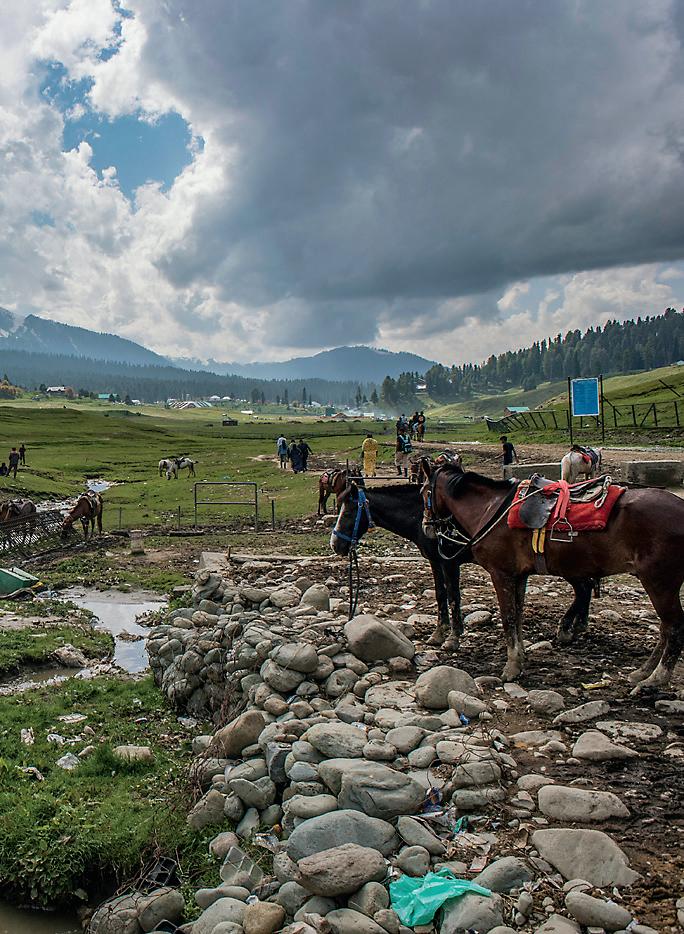 (Above) Dragon dancers participate in a parade to celebrate World Falun Dafa Day, in New York on May 12.
(Above) Dragon dancers participate in a parade to celebrate World Falun Dafa Day, in New York on May 12.
Special counsel John Durham arrives at a federal court in Washington on May 18, 2022. Durham’s report lacks any criminal referrals or pending indictments of those who were involved in the Russia collusion hoax.
The special counsel’s report is deeply flawed, with no convictions and no accountability
 BY JEFF CARLSON
Commentary
PHOTO BY TENG CHEN FOR THE EPOCH TIMES
BY JEFF CARLSON
Commentary
PHOTO BY TENG CHEN FOR THE EPOCH TIMES

The Lead Crossfire Hurricane
The FBI I s F atally corrupt. The justice system is totally broken.
That’s what we can conclude from the Durham report. Special counsel John Durham’s report hammers home two separate points time and again: The FBI opened an investigation of the Trump campaign entirely without reason or any underlying predication, and the FBI protected Hillary Clinton’s campaign at the same time that the agency aggressively pursued Donald Trump.
But the Durham report also is deeply flawed. There are no convictions, or referrals of major Russiagate plotters and players.
Democrats will be able to rebut Durham’s report simply by saying, “If Durham’s findings were so damning, why was no one convicted?”
And why were so many major figures such as former FBI Director James Comey, former FBI agent Peter Strzok, and Fusion GPS co-founder Glenn Simpson not compelled to sit for interviews?
Why did Durham fail to utilize classified information in his analysis? Why did he limit his scope primarily to the actions of the FBI? And why did he fail to examine events beyond early 2017, when Crossfire Hurricane morphed from a relatively quiet pre-election investigation into a full-blown public investigation of the president?
While the report fleshes out further details and reinforces points already made, there’s very little that we didn’t already know or hadn’t already reported.
There is a sense of vindication—everything we’d long thought of as fact has now been verified or proven. But the hard reality is that there’s very little in the way of new information contained in the report.
In many ways, Durham’s report appears to be a more detailed rehash of his previously released speaking indictments relating to Clinton campaign lawyer Michael Sussmann and his entanglements with the FBI and many other Clinton affiliates.
There’s something of even greater importance noticeably missing from Durham’s report: a complete lack of any criminal referrals or pending indict-
ments of those who were involved in the Russia collusion hoax. There’s no accountability. And without that, there will be no change.
I see the report from several different angles. First, Durham doesn’t cover anything that we didn’t already have at least some working knowledge of. It does confirm our previous understanding of Russiagate and the FBI’s efforts to hinder the Trump campaign in order to help Hillary Clinton.
But we expected that to be the case.
However, a deeply disappointing feature of Durham’s report is that it appears to be far too narrowly focused. The report zeros in on the many faults of the FBI, including the lack of predication behind the opening of the Crossfire Hurricane investigation and the FISA warrant to surveil Trump adviser Carter Page.
Durham also covers the Alfa Bank allegations—which he already covered in detail in his Sussmann indictment— along with the actions of Christopher Steele and his primary subsource, Igor Danchenko.
But it’s what Durham doesn’t cover that’s far and away most notable. Durham doesn’t appear to even touch on notable high-level events such as the White House meeting on Jan. 5, 2017, that included then-President Barack Obama—a meeting that appears to directly implicate both Obama and now-President Joe Biden in the coming attacks on Trump’s administration.

There’s also no effort to address the NSA’s collection of data and the unmasking of members within the Trump campaign that were highlighted by then-
Rep. Devin Nunes in early 2017. While we know that some of the actions taken by the FBI and other three-letter agencies required high-level decision-making, Durham not only failed to address the actions of these high-level individuals, he didn’t even identify them.
Durham didn’t even address the supposed hack of the Democratic National Committee servers. This lack of information is made all the more frustrating by the fact that Durham’s team conducted “more than 480 interviews” and reviewed “more than six million pages of documents.” It seems clear that a big part of the story remains untold.
There’s also a generalized absence of information on anything post-January 2017. We didn’t find anything material on the intelligence community assessment that was used to push the narrative that President Trump had been compromised by Russia. We also didn’t find anything regarding the Obama admin-
There’s very little that we didn’t already know or hadn’t already reported.
istration’s targeting of Trump’s national security adviser, Gen. Michael Flynn.
Nor did Durham address the FBI’s leadership briefing of the Justice Department (DOJ) and Congress in March 2017, in which James Comey not only misrepresented the entirety of the FBI’s investigation, but also failed to disclose Danchenko’s information and his complete lack of suitability as a confidential human source—which invalidated the entirety of the Steele dossier.
Importantly, there’s a complete failure on the part of Durham to provide any measure of accountability. There are virtually no criminal referrals contained in Durham’s report, nor are there any material recommendations for criminal investigations of these individuals.
Once again, there’s no accountabili-
ty for those who are truly guilty—and those who are truly privileged.
In tandem with these questions and observations, we find ourselves wondering about the speed with which Durham’s report was delivered to the DOJ and then provided to the public.
Durham submitted his report to the DOJ and Attorney General Merrick Garland on May 12. The report was released publicly on May 15. How is that possible?
The answer may lie in a section of his letter that notes that “thorough, coordinated reviews of the information contained therein” were made “by the appropriate authorities within the Federal Bureau of Investigation, the Central Intelligence Agency, and the National Security Agency.” In other words, Durham appeared to coordinate his work on the
report with those agencies. The report had already been formally vetted before he ever delivered it to Garland.
One thing that immediately stands out in Durham’s report is that the FBI knew almost from the outset that the Crossfire Hurricane investigation had been opened on virtually no evidence.
Durham found that the “FBI discounted or willfully ignored material information that did not support their budding narrative of a collusive relationship between Trump and Russia.” Durham also noted that Crossfire Hurricane “was opened as a full investigation without the FBI ever having spoken to the persons who provided that information.”
Furthermore, Durham noted that the FBI did so without any significant review of its own intelligence databases, without the collection and examination of any relevant intelligence from other U.S. intelligence entities, without interviews of witnesses that were essential to understanding the raw information the FBI had received, and without the use of any of the standard analytical tools typically used by the FBI to evaluate raw intelligence.
“At the time of the opening of Crossfire Hurricane,” Durham notes, “the FBI did not possess any intelligence showing that anyone associated with the Trump campaign was in contact with Russian intelligence officers at any point during the campaign.” Durham pointed out that if the FBI had done even the most rudimentary of standardized work, the agency would have learned that its own “experienced Russia analysts had no information about Trump being involved with Russian leadership officials nor were others in sensitive positions at the CIA, the NSA, and the Department of State aware of such evidence concerning candidate Trump.”
To make matters even worse, records prepared by the FBI’s Strzok in February and March 2017 showed that at the time of the opening of Crossfire Hurricane, the FBI had no information indicating that anyone in the Trump campaign had been in contact with any Russian intelligence officials.
But it’s even worse than that. Keep in mind that by July 26, 2016, our intelligence agencies had obtained in-

sight into Russian intelligence analysis alleging that Clinton had approved a campaign plan to vilify Trump by tying him to President Vladimir Putin and the Russians’ hacking of the DNC servers.
CIA Director John Brennan subsequently briefed Obama and other senior national security officials on July 28, 2016, regarding the intelligence, known in Durham’s reports as the “Clinton plan intelligence.” Brennan briefed FBI Director Comey the following day. Brennan and other agency officials then took steps to ensure that dissemination of the Clinton plan intelligence would be limited in order to “protect sensitive information and prevent leaks.” This information should have ended the FBI’s Crossfire Hurricane investigation before it even began, just days later, on July 31, 2016.
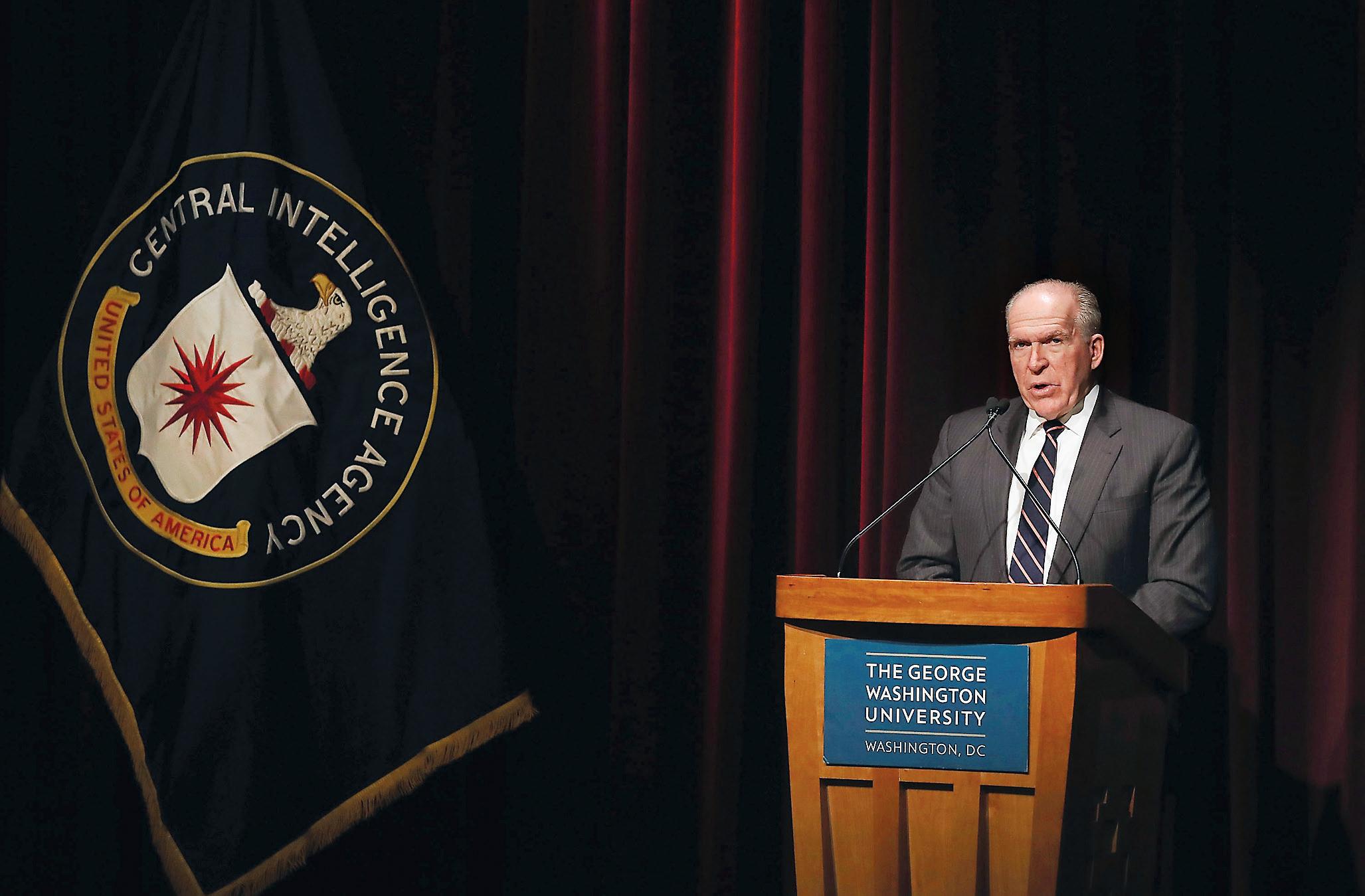
Instead, Brennan acknowledged to Durham that an interagency “fusion cell,” a team ostensibly created to synthesize and analyze pertinent intelli-
gence on Russian malign influence activities related to the presidential election, was put in motion after his meeting with Obama on July 28. Durham stated that some CIA personnel believed that the Clinton plan intelligence led to the decision to set up the fusion cell.
In other words, Brennan and Obama were working to protect Clinton—and they were doing so at the expense of Trump.
But Brennan’s work didn’t end there. On Aug. 3, 2016, Brennan met with Obama, then-Vice President Biden, and other senior administration officials, including Comey and Attorney General Loretta Lynch. At that meeting, Brennan briefed the entire group on the Clinton plan.
Despite these briefings on the Clinton plan intelligence—including at least two briefings to Obama—Durham noted that when interviewed, Brennan “generally recalled reviewing the materials” but stated he did not recall focusing spe-
cifically on its assertions regarding the Clinton campaign’s purported plan, despite having briefed Obama and written notes of the Clinton intelligence.
Brennan recalled instead focusing on Russia’s role in hacking the DNC.
Meanwhile, the FBI steadfastly refused to investigate the Clinton campaign for its plans to vilify Trump. The agency refused because it was now part of the Clinton plan. Remember, the FBI was using the Steele dossier, paid for by the Clinton campaign, as the backbone of its investigation.
It was an entirely politicized attack on a Washington outsider by members of the intelligence community who had aligned themselves politically with the Clinton campaign. That alignment was further highlighted by the FBI’s treatment of the Clinton campaign, which differed dramatically from the manner in which it treated Trump.
The FBI was faced with a number of proposed investigations of the Clinton
campaign that had the potential to affect the election. As Durham notes in each of those instances, in contrast to the agency’s approach in its investigation of Trump, the FBI moved with considerable caution in any investigation even remotely related to the Clinton campaign.

In one instance, FBI headquarters required that defensive briefings were provided to Clinton and other officials who appeared to be targets of foreign interference. In other words, the FBI warned the Clinton campaign, rather than opening an investigation of the campaign as it did with Trump.
In another instance, the FBI elected to end an investigation after one of its longtime and valued confidential human sources took actions that went beyond what was authorized, making an improper and possibly illegal financial contribution to the Clinton campaign on behalf of a foreign entity—and as a precursor to a much larger donation being contemplated.
Despite all the noise surrounding Trump’s supposed connection to Russia, it was the Clinton campaign that was facing foreign influence efforts by a foreign government. Durham’s report notes that a confidential human source (CHS) provided information to the FBI about election influence efforts that were targeting the Clinton campaign in November 2015.
Durham notes that a foreign government insider who was known to the FBI to have foreign intelligence and criminal connections had solicited the FBI’s CHS to set up a meeting with Clinton, to propose what the CHS understood to be campaign contributions on behalf of the unnamed foreign government—in exchange for the protection of that government’s interests should Clinton become president.
Although it doesn’t appear that a meeting with the foreign government insider actually took place, the CHS made a $2,700 campaign contribution to the Clinton campaign on the insider’s behalf.
Moreover, the CHS told both the FBI and Durham that the Clinton campaign was “okay with it” and that “they were fully aware from the start” of the contributions being made.
But despite that admission to the FBI—along with the offer of a credit card receipt—the handling agent re-
fused to document the information in the case file, going so far as to tell the CHS to “stay away from all events relating to the Clinton Campaign,” thereby removing the FBI’s sole insight into the election influence efforts of the foreign government in the process.
Also, unlike what was seen in the FBI’s rapid and aggressive opening of Crossfire Hurricane, the FBI appears to have made no effort to investigate the illegal contribution to Clinton’s campaign.
But that’s not all. Beginning in January 2016, FBI field offices in New York, Washington, and Little Rock, Arkansas, each opened an investigation into possible criminal activity involving the Clinton Foundation.
Two of these investigations were opened “based on source reporting that identified foreign governments that had made, or offered to make, contributions to the Foundation in exchange for favorable or preferential treatment from Clinton.”
On Feb. 1, 2016, a meeting was held to discuss the investigations of the Clinton Foundation. Three weeks later, on Feb. 22, 2016, another meeting was held at FBI headquarters to discuss the investigations. Unlike the others, that meeting was chaired by Deputy FBI Director Andrew McCabe, who issued instructions that the investigations be shut down.
Although McCabe’s instructions were met with objections, the meeting concluded with the formal direction that any further investigative steps would require his direct approval.
Durham noted that this restriction on overt investigative activity essentially remained in place until August 2016. But the effort to shut down any investigation of the Clinton Foundation didn’t end there. A call was placed from a senior FBI official on behalf of Comey around May 2016, directing the FBI’s New York field office to “cease and desist” the Foundation investigation because of some undisclosed counterintelligence concern.
The New York field office was never able to determine what the counterintelligence issue raised by Comey was.
All three investigations were ultimately folded into the New York field office, but the U.S. attorney’s offices in the Southern and Eastern Districts of New York both declined to issue subpoenas to the New York field office, despite previously expressing support for the investigation.
The FBI’s stonewalling of any investigation of Clinton, combined with the zealousness that the FBI demonstrated in pursuing Trump, proves one thing: The agency wasn’t conducting an investigation, it was conducting an operation.
DATE BACK TO 2014
 EXECUTIVE BRANCH
EXECUTIVE BRANCH
President Joe Biden and his son Hunter Biden arrive at Hancock Field Air National Guard Base in Syracuse, N.Y., on Feb. 4.
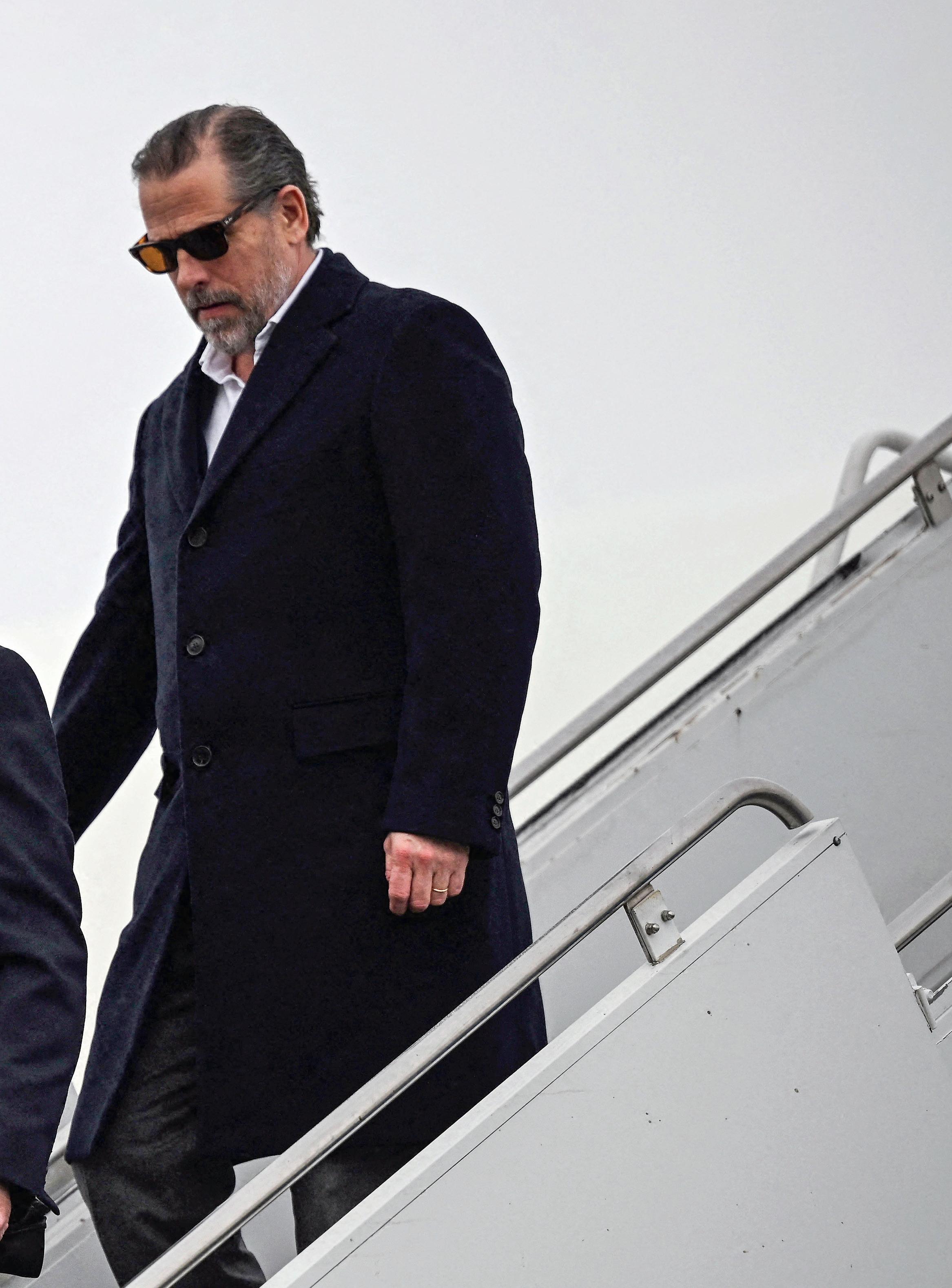
Commentary
PHOTO BY ANDREW CABALLERO-REYNOLDS/AFP VIA GETTY IMAGESMany o F the corrupt Ion allegations currently swirling around President Joe Biden have been around for years, dating back to his son Hunter Biden’s early trips to China with him on Air Force Two. But recently, there’s been a flood of new information that has come to light.
This information includes two separate whistleblowers—one with the IRS involving the Hunter Biden criminal probe and another that’s alleging corruption and potential bribes on the part of Joe Biden. We also have allegations from Rep. James Comer (R-Ky.) regarding flows of foreign money through shell companies to the Biden family.
The whistleblower accusations of corruption that describe a “criminal scheme involving then-Vice President Joe Biden and a foreign national relating to the exchange of money for policy decisions” potentially represent the biggest news.
But these allegations may be just the tip of the iceberg.
On April 16, 2014, then-Vice President Joe Biden met at the White House with Hunter Biden’s business partner, Devon Archer. Although it isn’t known what was discussed at that meeting, it appeared to have set many events in motion.
One week later, on April 21, Joe Biden traveled to Ukraine, offering not only his political support, but also $50 million in aid for Ukraine’s shaky new government. During Joe Biden’s Ukraine visit, on April 22, 2014, it was announced that Archer had suddenly joined the board of Burisma.
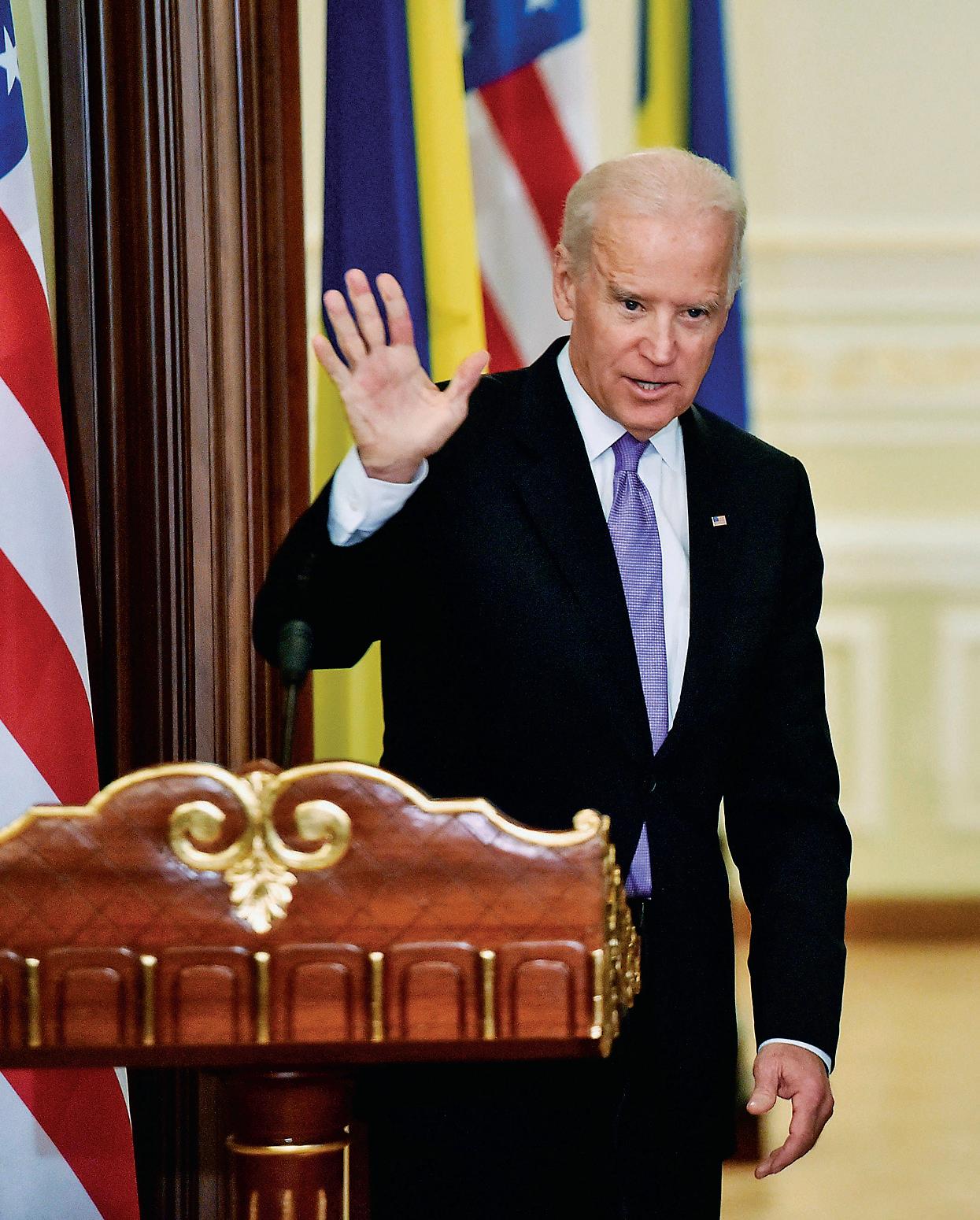
As it turns out, Hunter Biden had also joined Burisma’s board that same month, but curiously Burisma didn’t announce Hunter Biden’s appointment until May 12, 2014, after his father’s visit to Ukraine had concluded.
Another particularly interesting item within the timeline of events was a very curiously timed trip by Joe Biden on May 21, 2014, to Romania and the island of Cyprus—the first visit by a senior U.S. official in 50 years.
As it turns out, Cyprus is where Burisma’s headquarters happened to be located. No real explanation has been given for that trip other than a White House statement that noted Biden’s intention to provide “strong support for a comprehensive settlement to reunify the island as a bizonal, bicommunal federation with political equality.”
The timing of Hunter Biden’s appointment to the Burisma board doesn’t appear to be accidental. Nor for that matter does Joe Biden’s trip to Cyprus.
On May 12, the same day that Hunter Biden’s appointment was formally announced, Burisma executive Vadym Pozharskyi sent an email to both Hunter Biden and Archer, telling them, “We urgently need your advice on how you could use your influence to convey a message/signal, etc. to stop what we consider to be politically motivated actions.”
The “politically motivated actions” referenced by Pozharskyi were actually ongoing investigations into Burisma and its owner, Mykola Zlochevsky, who had
reportedly been issued an unusually large number of permits in Ukraine to extract oil and gas during his time as minister of natural resources. In April 2014, the same month that Hunter Biden joined Burisma, the Ukrainian Prosecutor General’s Office opened an investigation into the company.
The Ukraine investigation began after UK authorities froze $23.5 million in assets belonging to Zlochevsky as part of a money-laundering investigation. But just eight months later, in December 2014, Ukrainian chief prosecutor Vitaly Yarema suddenly issued a letter to the London court stating that “there was no active case open on Zlochevsky.”

As a result, the frozen assets were released by the UK. George Kent, who was the deputy chief of mission in Kyiv at the time, later wrote an email in which he stated that he had been told by Ukraine’s deputy prosecutor general that Burisma had paid a $7 million bribe to end the investigation into Zlochevsky.
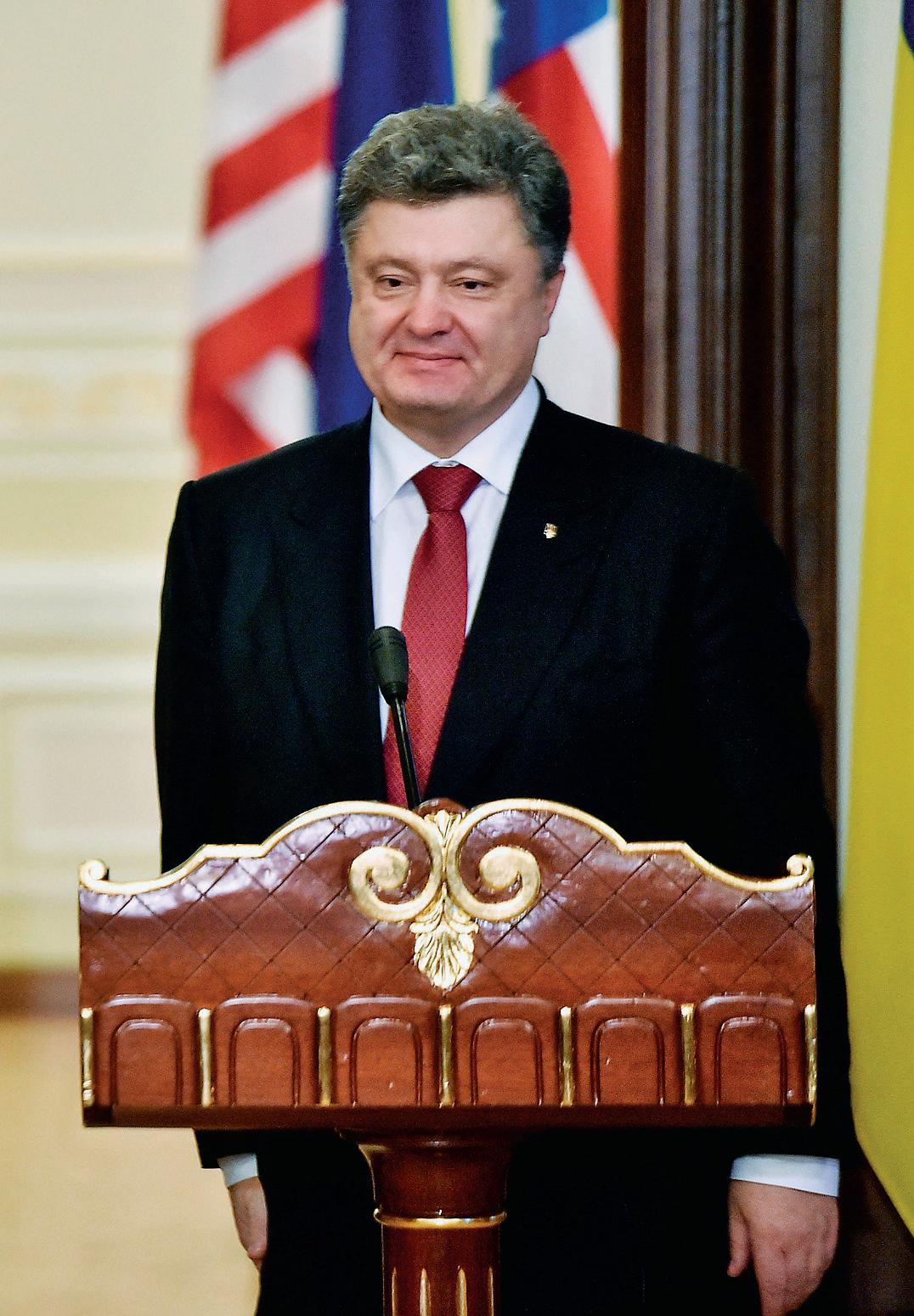
At the time of the alleged bribe payment, Hunter
Biden was, according to Burisma itself, in charge of the company’s legal affairs.
Yarema resigned on Feb. 9, 2015. His replacement was Victor Shokin, a former prosecutor—brought out of retirement by Ukrainian President Petro Poroshenko— who was appointed the following day.
Initially, Shokin’s appointment was welcomed by U.S. officials, including Obama’s assistant secretary for European and Eurasian affairs, Victoria Nuland, who personally wrote Shokin in June 2015, telling him that “we have been impressed with the ambitious reform and anti-corruption agenda of your government.”
However, the support for Shokin appeared to have changed very quickly after Hunter Biden received another email from Burisma’s Pozharskyi on Nov. 2, 2015. Pozharskyi demanded that Biden produce “deliverables,” stating that the “ultimate purpose” was to “close down any cases or pursuits” against Burisma’s owner.
Pozharskyi, who had previously met Joe Biden at a dinner in Washington on April 16, 2015 (more on that
later), to be targeting Shokin, who had reopened the investigation into Zlochevsky that had been shut down by his predecessor. Shokin had also successfully sought an order from Ukrainian courts to seize Zlochevsky’s assets. Those assets were eventually seized on Feb. 2, 2016.

Pozharskyi’s outreach must have worked. On the same day that Pozharskyi emailed Hunter Biden about deliverables, the younger Biden reached out to Amos Hochstein, Obama’s special envoy and coordinator of international energy affairs.
Hunter Biden met in person with Hochstein four days later, on Nov. 6, 2015. Hochstein later told congressional investigators that Hunter Biden “wanted to know my views on Burisma and Zlochevsky.”
On Nov. 22, 2015, less than three weeks after Pozharskyi’s email, Joe Biden demanded the removal of Shokin. After Ukrainian President Poroshenko failed to comply with the demands, Biden leveraged $1 billion in U.S. taxpayer loan guarantees to force Shokin’s removal. Shokin was finally removed by Poroshenko in March 2016, which Biden later famously bragged about.
Then-Ukrainian prosecutor general Viktor Shokin (R) during a press conference in Kyiv on Nov. 2, 2015. Shokin, who had reopened the investigation of Mykola Zlochevsky, was removed from his position in March 2016.
As it turns out, there’s a fascinating postscript to this story that still needs further expansion and more details. Joe Biden got involved with Ukraine after Nuland had a conversation with then-U.S. Ambassador to Ukraine Geoffrey Pyatt, which was intercepted and leaked to the BBC.
In the call, Nuland, who’s now President Joe Biden’s undersecretary of state for political affairs, discussed the ouster of then-Ukrainian President Viktor Yanukovych and the installation of opposition leader Arseniy Yatsenyuk as prime minister. During their conversation, Nuland noted that then-national security adviser Jake Sullivan had informed her that “you need Biden,” and she concluded by telling Pyatt that “Biden’s willing.”

Biden was appointed as the Obama administration’s point man on Ukraine in February 2014. On Feb. 22, 2014, Yanukovych was removed as president of Ukraine and, three days later, Yatsenyuk, the candidate favored by Nuland, was installed as prime minister.
It was during this same time, on Feb. 14, 2014, that Russian businesswoman Elena Baturina wired a $3.5 million payment to Rosemont Seneca, Hunter Biden’s investment firm. Baturina is the former wife of the late Yuri Luzhkov, who was the mayor of Moscow.
Baturina also sent a series of payments between May 6, 2015, and Dec. 8, 2015, to Rosemont. The payments by Baturina are detailed in a September 2020 Senate report, but the full story behind Baturina’s payments to Hunter Biden has always been elusive and details are sparse. Several things have always bothered me and “Truth Over News” co-host Hans Mahncke. How did the Bidens end up being involved with Burisma?
Why did Joe Biden make that curious trip on May 21, 2014, to Romania and Cyprus—the first visit by a senior U.S. official in 50 years—where Burisma’s headquarters just happened to be located?
Why did Baturina suddenly send the $3.5 million in early 2014 to Hunter Biden’s investment firm?
Further questions are raised by a short quote from a New York Post article that notes that Baturina met Hunter Biden “and his then-business partner Devon Archer for a drink in April 2014 at the Villa d’Este—a well-known haunt of Russian oligarchs overlooking Italy’s Lake Como.”
This detail struck me and my co-host as very strange.
Why would Hunter Biden and Archer have had an informal meeting in Italy with Baturina at this particular moment in time—just as they joined the Burisma board?
That same article by the Post also adds a very small follow-on note, stating, “On the same trip, Hunter also met the Ukrainian–Russian oligarch owner of Burisma, Mykolai Zlochevsky.”

It’s this bit of information that brings us full circle to the May 12, 2014, email from Burisma’s Pozharskyi to Hunter Biden that we highlighted at the outset. Pozharskyi’s email opened with, “Following our talks during the visit to the Como Lake and our further discussions, I would like to bring the following situation to your attention.”
Pozharskyi then goes on to address Burisma’s legal issues. All of this leaves us pondering a multitude of issues—as these events surrounding Hunter Biden, Joe Biden, Burisma, and Baturina appear to be somehow interconnected.
Further connections present themselves via a dinner held at Cafe Milano on April 16, 2015—the same D.C. dinner attended by Pozharskyi that we referenced earlier.
We know from a series of March 2015 emails that Pozharskyi, who’s listed as “Vadym,” and Baturina, who’s listed as “Yelena and husband,” were both invited by Hunter Biden to attend that April 2015 dinner in Washington. Joe Biden made it a point to stop by for some period of time. While it remains unclear if Baturina actually ended up going to this dinner, the incredible coincidences of timing and overlap leave us in a position where we can’t help but wonder.
Was Baturina, along with her February 2014 $3.5 million payment to Hunter Biden’s firm, somehow connected to Joe Biden’s sudden involvement with Ukraine and his son’s sudden placement onto the board of Burisma?
And was her involvement then further connected to Joe Biden’s forced firing of the prosecutor who was
actually making headway in investigating the owner of Burisma, Zlochevski? Although it’s too early to say with certainty, we have a strong feeling more will be revealed in this matter.
As we mentioned at the start of all this, Hunter Biden’s connections to China go back to at least 2010.
According to the previously mentioned September 2020 Senate report, sometime in 2015, his contacts with a Chinese businessman, Ye Jianming, began in earnest.
Ye was the founder of CEFC China Energy and a frequent figure in the Biden family’s financial dealings with China. Ye was also chairman of the board of CEFC’s subsidiary, the China Energy Fund Committee.
Although CEFC reportedly remained a “private company” until state-owned enterprises assumed control of it in 2018, the company received financing from the China Development Bank, “hired a number of former

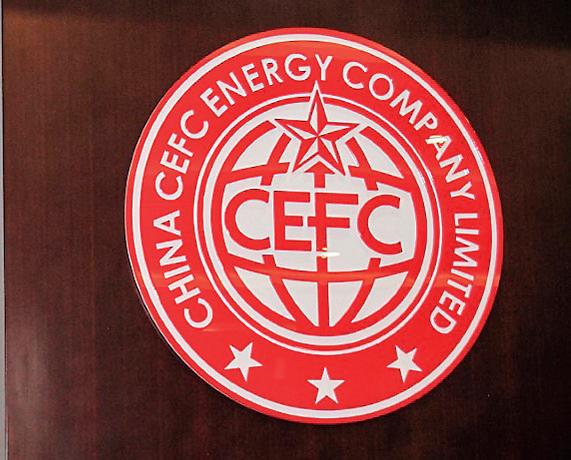
top officials from state owned energy companies,” and had “layers of Communist Party committees across its subsidiaries.”
The company was also reported to have had “intelligence ties” within China. In other words, the company was effectively controlled by the Chinese Communist Party.
CEFC was a large, fast-growing company with the backing of the Chinese regime, ranking No. 229 on the Global Fortune 500 list in 2016, with $42 billion in revenue. The company owned several thousand gas
stations in Europe, many of which were purchased from Kazakhstan’s state oil company.
CEFC also owned a million-ton oil storage system in Spain and France that served as a major conduit that extended China’s connections with the world oil supply. CEFC was an integral part of the regime’s Belt and Road Initiative, which was designed to spread China’s influence and control across the world. Ye was dubbed the “Belt and Road billionaire” in the press.
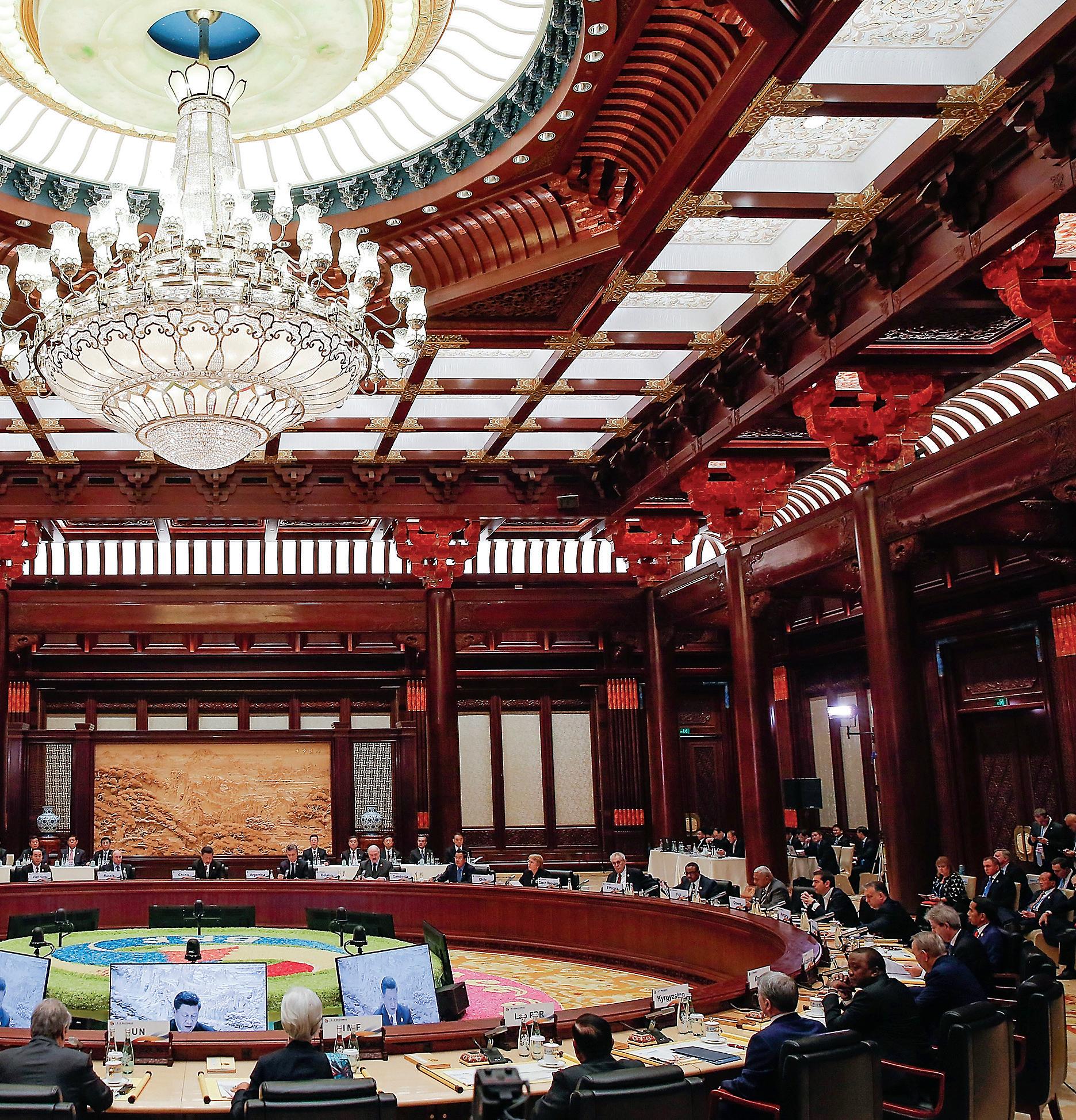
In December 2015, Ye flew to Washington and met with Hunter on Dec. 7, 2015. One of Hunter Biden’s
former associates even told the New York Post that Hunter brought Ye to a Christmas party in order to introduce him personally to his father, Joe Biden. Hunter Biden’s associations with Ye would continue into early 2018 when Ye was suddenly detained by the Chinese authorities and disappeared from public view.
In February 2017, Hunter Biden and Ye met at a hotel in Miami, where Ye reportedly offered the younger Biden $10 million a year for three years for “introductions alone.”
It was at this same meeting that Ye presented Hunt-
er Biden with a 3.16-carat diamond with an estimated value of $80,000. Then, just “nine days later, on Feb. 23, 2017, State Energy HK Limited, a Shanghai-based company that was affiliated with CEFC China Energy, sent a $3,000,000 wire” to Robinson Walker, a company directly associated with another of Hunter Biden’s business associates, Rob Walker.
Another $3 million was sent on March 1, 2017. Although it isn’t yet known with precision what happened with the $6 million, it is known that Hunter Biden received regular payments from Walker’s company, along with more than $500,000 from Walker directly. Each of the $3 million wire transfers was flagged by the Department of Treasury’s Financial Crimes Enforcement Network in a “suspicious activity report.”

In August 2017, a new company named Hudson West
III was officially formed. Hudson III’s primary purpose appears to have been nothing more than a vehicle to transfer money to the Bidens. Ye injected $5 million in capital into Hudson III through his LLC, the similarly named Hudson West V, which in turn was funded by CEFC China. Meanwhile, Hunter Biden contributed no capital to the new venture although he owned 50 percent of the new company.
The operating agreement of Hudson III stipulated that Hunter Biden would receive a $500,000 retainer and $100,000 per month. Joe Biden’s brother, James, would receive $65,000 per month. This newly formed entity also made large credit card payments for items purchased by the Bidens. The total payments made from Hudson III to Hunter Biden’s personal company, Owasco, totaled $4.8 million in just over one year.
The timing of Hunter Biden’s (L) appointment to the Burisma board doesn’t appear to be accidental. In the same month that Biden joined Burisma, the Ukrainian Prosecutor General’s Office opened an investigation into the company.
In addition to the $65,000 per month paid to James Biden, payments also flowed to Lion Hall Group, a company he owned. Most of this money, about $1.4 million, appears to have been funneled through Hunter Biden’s company, which was funded in turn by the Hudson III joint venture—whose sole source of funds was various affiliates directly tied to Ye’s Chinese company, CEFC.
In November 2017, another payment from Ye’s CEFC was made to Hudson III—this time for $1 million. A few months later, Hunter Biden’s company was paid $1 million to represent Patrick Ho, a business associate of Ye’s. Ho would later be “charged and convicted of international bribery and money laundering offenses stemming from his work for the CEFC-backed China Energy Fund Committee.”
Hunter Biden would later refer to Ho in an email as “the [expletive] spy chief of China.” At the time of Ho’s arrest in the United States, his first call was to James Biden, who would later claim Ho’s call was intended for Hunter Biden.
After the formation of Hudson III, Hunter Biden hired a woman named JiaQi (Ja-Chi) Bao. Her involvement with Hudson III was far more extensive than initially thought. According to a letter sent by Comer, “Bao was also working for CEFC employees linked to the CCP.” Comer noted that Bao “appeared to be effectively running the joint venture under Hunter Biden’s name.”
When CEFC’s Ye was detained in China in March 2018, Bao sent Hunter Biden an email explaining that “Ye’s situation changed” and that Hunter Biden needed to take as much money as he could from Hudson West III because if he failed to do so, the money would become “nobody’s money.” At the time of Bao’s email to Hunter Biden, Hudson III still had about $3.5 million in the company’s account.
It’s hard to know what to make of the sudden flood of revelations and disclosures.
Are these ongoing disclosures an outgrowth of Republican investigations into the Biden family’s convoluted financial dealings? Or are they tied to Biden’s announcement to run for a second term—perhaps a pre-emptive move by the DNC or the Obama faction to remove him as a candidate?
Only time will answer these questions, but one thing’s for sure: Nothing happens in our nation’s capital by accident.
Joe Biden’s May 2014 visit to the island of Cyprus was the first by a senior U.S. official in 50 years. Cyprus is where Burisma’s headquarters are located. Hunter Biden was appointed to Burisma’s board in the same month.

$1
Joe Biden leveraged $1 billion in U.S. taxpayer loan guarantees to force the removal of Ukrainian chief prosecutor Victor Shokin, who had reopened the investigation into Burisma owner Mykola Zlochevsky that had been shut down by Shokin’s predecessor.
In February 2017, Hunter Biden and Chinese businessman Ye Jianming met at a hotel in Miami, where Ye reportedly offered him $10 million a year for three years for “introductions [to Joe Biden] alone.”
$6
Chinese businessman Ye Jianming sent two wire transfers of $3 million to a company directly associated with one of Hunter Biden’s business associates. Each wire transfer was flagged by the Department of Treasury’s Financial Crimes Enforcement Network in a “suspicious activity report.”
 PHOTO BY KEVIN FRAYER/GETTY IMAGES
A military drone is displayed during a parade to celebrate the 70th anniversary of the founding of the Chinese communist regime at Tiananmen Square in Beijing on Oct. 1, 2019.
PHOTO BY KEVIN FRAYER/GETTY IMAGES
A military drone is displayed during a parade to celebrate the 70th anniversary of the founding of the Chinese communist regime at Tiananmen Square in Beijing on Oct. 1, 2019.
War gr Ips the world, and the most powerful nations on earth go to battle once more. This time, however, it’s machines that do the killing, operating free from all human oversight and accountability.
It’s a grim picture of future conflicts, but it’s one that the Chinese Communist Party (CCP) is nevertheless working to make a reality with artificial intelligence (AI).
Gregory Allen, director of the Wadhwani Center for AI and Advanced Technologies at the Center for Strategic and International Studies, said the regime is moving well beyond any attempt to keep a human in the AI decision-making loop.
“China is pursuing development of AI-enabled lethal autonomous weapons,” Allen wrote in prepared testimony for an April 13 hearing of the U.S.–China Economic and Security Review Commission.

“The best available indications ... suggest that China’s strategy is ambitious, moving beyond any sort of on-the-battlefield human supervision into increasingly autonomous AI-enabled warfare.”
Although the CCP is investing heavily in a broad array of new technologies, AI is foremost among them, he said. The regime’s capacity to build AI-driven machines of war is quickly reaching parity with that of the United States and may even exceed it soon.
“U.S. leadership in the realm of military AI is not at all guaranteed,” Allen said.
“While the United States has important advantages, China may be able to quickly take the lead in government and military adoption of AI capabilities. This is an outcome that the United States should seek to prevent.”
The CCP’s pursuit of AI-driven weapons and other military platforms, although not well understood by many Americans, has been going on for years.
Allen said he first realized the remarkable ambition of such goals back in 2018. At that time, he attended a conference where he transcribed a
speech made by Zeng Yi, a senior executive at Chinese state-owned military company Norinco.
There, Zeng described Norinco’s ambitions—and the CCP’s expectations— for future implementation of AI weapons: “In future battlegrounds, there will be no people fighting.”
“Zeng predicted that by 2025, lethal autonomous weapons would be commonplace,” Allen said, noting that Zeng had described the mass adoption of autonomous AI platforms as “inevitable.”
Allen also noted that CCP censors removed Zeng’s comments and even his participation from the official readout of the conference shortly thereafter.
“It was not in China’s interest to have that information in the open,” he said.
Not long after that, however, the CCP-affiliated military company Ziyan began exporting its Blowfish A2 and A3 drones to the Middle East. The Blow-
fish, a helicopter-style drone capable of autonomously engaging with targets, using machine guns and missiles, was just the first realization of the regime’s ambition to transform war from a human domain into a robotic one.
The regime’s ambitions for AI go beyond killer robots. The CCP is also investing to develop AI capabilities related to military decision-making and command and control.
At the heart of the effort is the CCP’s goal of “intelligentization,” a transformation of warfare through the mass integration of AI, automation, and big data.
Zeng posited that “intelligence supremacy will be the core of future warfare” and that “AI may completely change the current command structure, which is dominated by humans” to
one that’s dominated by an “AI cluster” that operates “just like the brain of the human body.”
Building on that vision are Chinese companies such as 4Paradigm, which was contracted by the CCP’s military wing to develop AI decision-making models and human–machine teaming software for use at the company and battalion levels.
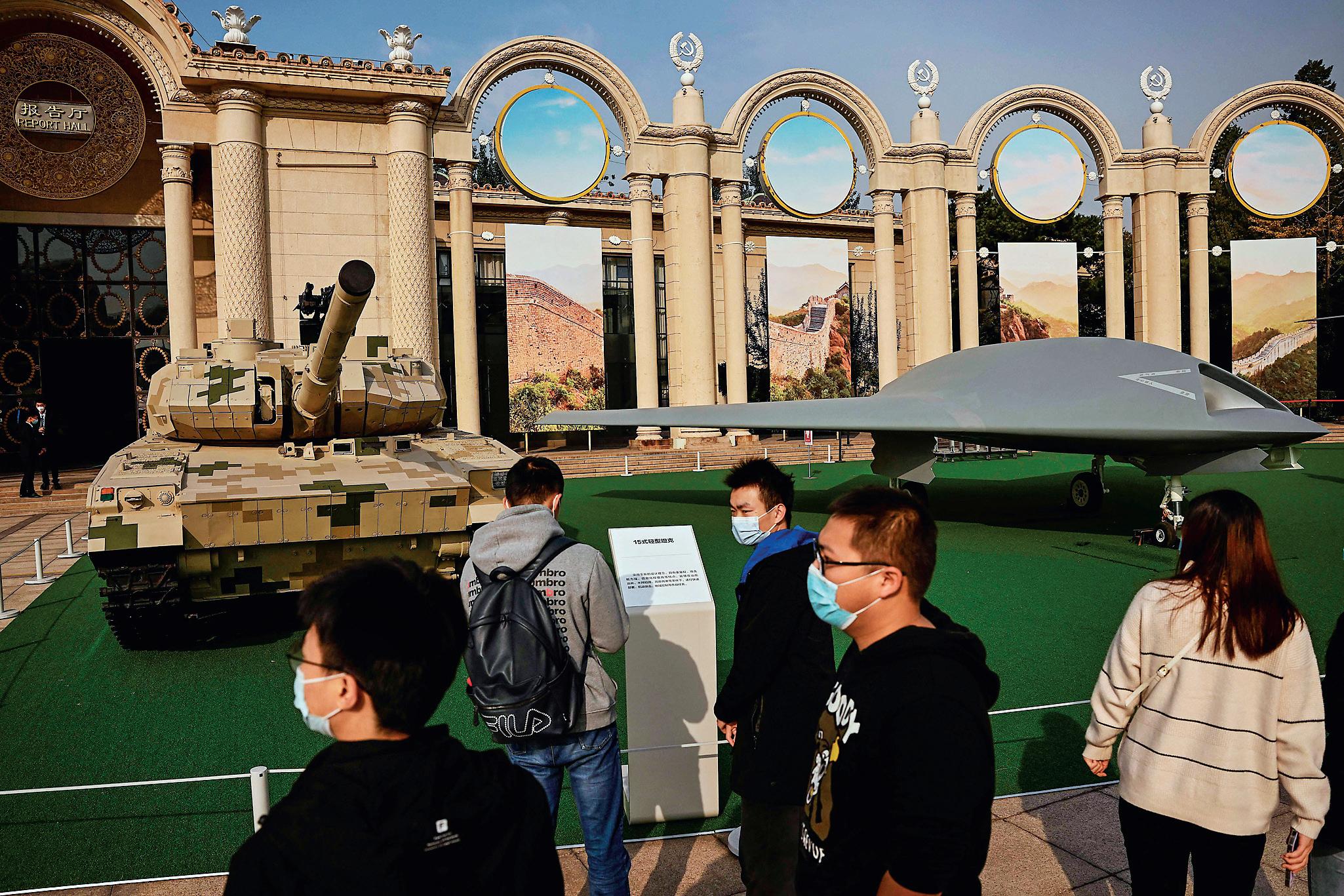
Such programs essentially point toward one end: the restructuring of the Chinese military into an increasingly centralized cadre of officers who direct swarms of AI-enabled autonomous systems to do the actual fighting.
Sam Kessler, an analyst for the North Star Support Group risk advisory firm, said he believes that the regime’s focus on shifting the burden of warfighting from humans to AI-enabled systems is indicative of a broader recognition among CCP leadership of the revolu-
tionary nature of intelligent autonomous systems.
“The [Chinese military] places a great deal of emphasis on disruptive technologies like autonomous systems,” Kessler said in an email to The Epoch Times.
“Unmanned combat systems with digitized decision-making programs can potentially speed up the process of performing tasks on the battlefield. [These include] precision strikes, accurate reconnaissance, resupplying forces, and performing field modifications more precisely and effectively.”
Such capabilities could provide even a meager military with a profound force multiplier and could shift the balance of power in future conflicts, he said.
The CCP isn’t alone in its ambition to lead a new revolution in military affairs. Many U.S. military leaders believe that the dawn of AI-enabled lethal autonomous systems is near.
Chairman of the Joint Chiefs of Staff Gen. Mark Milley shares a similar vision to that of Zeng. He said he believes that the world’s most powerful militaries will be primarily robotic in 10 to 15 years.
“Over the next 10 to 15 years, you’ll see large portions of advanced countries’ militaries become robotic,” Milley said. “If you add robotics with artificial intelligence and precision munitions and the ability to see at range, you’ve got the mix of a real fundamental change.
“That’s coming. Those changes, that technology ... we are looking at inside of 10 years.”
Lt. Gen. Ross Coffman, head of the Army Futures Command, said he believes that the United States will enter an age characterized by artificially intelligent killing machines by 2040.
“I think we’re going to see a flip in 2040 where humans are doing those functions that allow the machine to get into a position of relative advantage, not the machine getting humans into a position of relative advantage,” Coffman said during a March 28 summit of Department of Defense leaders and technology experts. He likened the relationship between AI and soldiers to that between a working dog and its handler. That aim is likely to face a bumpy path forward as the United States con-
tends with China’s embrace of lethal AI systems, according to Kessler.
“The DOD recently announced they intend to continue developing AI and autonomous lethal systems ... that will enable them to keep an edge in the changing global security environment,” Kessler said. “However, keeping a human element involved in the operation of AI autonomous and semi-autonomous lethal systems also remains a priority.
“Since the [Chinese military] is not committed to this DOD strategy and belief system, it will force the U.S. to invest heavily into it. It will also require the U.S. to ensure that the balance between being ethical and conducting oversight does not get in the way of being lethal and operational at the same time.”
As the CCP continues its quest for intelligentized warfare, Allen said he believes that a critical weakness that the United States must overcome is its indirect support of China’s AI industry.
Because the United States considers AI to be a discrete technology rather than a category of general-purpose technology, such as electricity or computers, the CCP is able to inadvertently develop its military capabilities through otherwise mundane research and development partnerships with the United States.
“The linkages between China’s AI sector and the United States’ AI sector are extraordinarily deep,” Allen said. “There really isn’t a part of the Chinese AI ecosystem that isn’t in some way drawing upon the U.S. AI ecosystem.”
Allen noted that half of all Chinese academic papers published on the subject of AI feature American co-authors.
Some of those research endeavors even include collaborations between major U.S. corporations and the companies responsible for pioneering China’s military AI development.
For example, Intel conducted research with 4Paradigm, even at the same time as the company was con-
tracted to develop AI decision-making models for the Chinese military. Google has collaborated extensively with military-linked entities in China through its China-based AI centers.
That research and any subsequent technological development based on it in China is then able to be effectively co-opted by the CCP through its strategy of Military-Civil Fusion (MCF), which mandates that all research and technologies serve national security needs in addition to civil needs.
The sheer volume of AI research and development being compiled by the regime through MCF is allowing the CCP to effectively catch up with the United States technologically, according to Elsa Kania, an adjunct senior fellow at the Center for
a New American Security think tank.
“We have to recognize [MCF] as an incredibly consequential component of China’s goal to catch up with or supersede the United States,” Kania said. “At a certain point, the quantity and the amount of resources put into these efforts do start to produce quality.”
She also said a key goal of MCF is to put the regime “at the forefront of technologies defining a new revolution in military affairs” and to “access and exploit dual use technologies,” including artificial intelligence and robotics.
“The writing has been on the wall for a while,” Kania said. “Intelligentization is what the [People’s Liberation Army] regards as the future of warfare.”
As such, she warned that, without adequate oversight measures, the regime’s development of AI-enabled weapons would continue at the expense of U.S. national security.
“Any investment in China [without oversight] ... has a risk of inadvertently contributing to military modernization,” Kania said. “There is a need for increased oversight and screening for outbound investments in those technologies ... [to ensure that] U.S. flows of funding are not inadvertently undermining U.S. interests.”
The CCP aims to develop AI capabilities related to military decision-making and command and control.
Unaccompanied minors (L), are grouped apart from others waiting to be processed by U.S. Border Patrol agents near the U.S.–Mexico border in La Joya, Texas, on April 10, 2021.
 PHOTO BY JOHN MOORE/GETTY IMAGES
PHOTO BY JOHN MOORE/GETTY IMAGES
I th thousands o F people entering the United States illegally, every town is a potential border town faced with absorbing large influxes of illegal immigrants who will need food, shelter, clothing, and money. Some are bused to large cities far from the border, and some have been flown—often in the middle of the night—to myriad destinations.
Many are unaccompanied minors, and although the government has 296 Influx Care Facilities (ICFs) located in 27 states to house such minors, it doesn’t make clear precisely where the minors are sent. When unaccompanied minors illegally cross into the United States and are apprehended by the U.S. Department of Homeland Security (DHS), they’re transferred to the custody of the Office of Refugee Resettlement (ORR), which is legally required to provide care for
all unaccompanied children referred to it while their claims to immigration are processed or until they’re placed with a sponsor, which may be a parent or relative.
To be considered an unaccompanied child, they must have no lawful immigration status in the United States, be younger than 18 years old, and have no parent or legal guardian in the United States available to provide care and physical custody.
As of May 5, there were 8,790 children in ORR care across the United States, but many more are expected, as Title 42 ended on May 11.
“While ORR has worked to build up its licensed bed capacity, additional capacity is urgently needed to manage the increasing numbers of unaccompanied children referrals from DHS,” ORR stated on May 5 on its website.
“In preparation for the potential need
for additional beds and to provide services and care that align with child welfare best practices, HHS [the Department of Health and Human Services] opened several [ICFs].
“ORR operates a network of 296 facilities/programs in 27 states and has a proven track record of accountability and transparency for program operations, as well as being a good neighbor in the communities where facilities are located.”
When The Epoch Times asked for a list of those facilities and states, neither the ORR nor the Department of Health and Human Services provided it.
A future facility in Greensboro, North Carolina, is mentioned on the ORR website. The future Greensboro Piedmont Academy will provide shelter for boys and girls aged 13 to 17 and has a capacity of up to 800 beds. But no children are in care there yet, the statement said, and an opening date hasn’t been determined. When open, the academy will provide education, housing, mental health and medical care, and case management.
Specifically, ICFs for unaccompanied minors must provide clean and comfortable sleeping quarters, meals, toiletries, laundry, educational and recreational activities, and access to medical services. Minors are tested for COVID-19 before being transported to the facility and every three days while in care. They’re given medical screenings and any follow-up care needed for any injuries or illnesses, according to ORR.
In March, news broke that Ehrenfeld Companies—the owner of the former two-year college for Mercyhurst University, Granite Ridge, in the borough of North East, Pennsylvania—was considering turning the property into housing for unaccompanied minors.
However, Rep. Mike Kelly (R-Pa.) and members of his office have been contacted by local leaders and residents expressing their objections to such a facility.
“There is a lot of concern from community members in North East about the prospect of an unaccompanied migrant facility in their town. We understand the talks between property owners and local officials remain ongoing and that it’s not a done deal just yet,” Matt Knoedler, Kelly’s spokesman, told The Epoch Times.

“So far, Representative Kelly and our staff remain in communication with all parties involved to remain up-to-date about the project’s future. We met with local officials and the property’s owners to learn more about the future of the project and what the impact of that project may be on the North East community.
“Many residents remain concerned
about a repeat of what happened in Erie County in 2021, when a group of nearly 150 migrant children was suddenly placed in an emergency intake site without first telling community members or even Representative Kelly. It appears the 2021 case is fresh in the minds of North East residents as the debate over this new proposed facility continues.”
Granite Ridge didn’t respond by press time to a request by The Epoch Times for comment.
On April 5, 2021, HHS opened an Emergency Intake Site for Unaccompanied Children at the Target Lodge Pecos North property in Pecos, Texas. As of June 4, 2022, the site transitioned to an ICF that provided shelter for boys and girls aged 13 to 17.

Then, on March 1, the facility was placed in warm status, which means that the facility isn’t fully staffed, with only minimal onsite facility management services, such as payment of utilities, infrastructure repairs, and fence, landscaping, and storm damage preparation.
Currently, there are no children in
care at the site and no reactivation date, according to ORR.
Between 2012 and 2022, unaccompanied minors entering the United States each year were mostly teenage boys from Guatemala, according to ORR statistics. In 2022, the ORR received 128,904 minors from the DHS. Of those, 47 percent were from Guatemala, followed by 29 percent from Honduras, 13 percent from El Salvador, 3 percent from Mexico, and 8 percent from all other countries.
Last year, 36 percent of captured unaccompanied minors were female and 64 percent were male; 15 percent were aged 12 or younger, 13 percent were aged 13 to 14, 36 percent were aged 15 to 16, and 36 percent were 17 or older.
That is, 72 percent were aged 15 or older, and 28 percent were aged 14 or younger.
“I would not want one of these facilities in my neighborhood because regardless of whether the kids commit any crimes, it’s a magnet for criminals. They attract everything from gangs to human traf-
fickers,” Matthew O’Brien, director of investigations at the Immigration Reform Law Institute, told The Epoch Times.
“These are being portrayed as something like a group home or a foster home. But they really need to be run more like a juvenile detention facility because the other problem is, most of these kids—by the time they’re put into this procedure—have not had background checks run on them. It’s a problem vetting minors in general, but particularly minor aliens. So we don’t know how many of these kids have had interactions with the criminal justice system in their home countries.”
O’Brien was appointed by then-President Donald Trump and worked as an immigration judge and ran the National Security Division of U.S. Citizenship and Immigration Services during the Trump administration. He said a lot of unaccompanied minors aren’t minors at all; they fake their age to get into the program, which often ends with a green card.
When he was a judge, he said he saw instances of people who were 27 years
old posing as minors and being put in U.S. high schools.
“Gang membership in Latin America regularly starts with kids as young as 8 to 10 years old. The program has been infected with gang members,” O’Brien said. “Gangs aren’t stupid. They know that this is also fertile ground for recruitment. Trafficking is another problem.
“A trafficker shows up and says, ‘This is my cousin’s kid. I’m a family member.’ And of course, the child knows that they need to say yes to that because if the child doesn’t, the child will be severely punished.”
He also said that once minors leave the facility, HHS has no idea what happens to them.
“HHS doesn’t have any staff to monitor the so-called sponsors,” O’Brien said. “There’s nobody doing random home visits. U.S. Citizenship and Immigration Services is not having their Fraud Detection and National Security Division look into any of this. So the whole thing is a disaster.”
In this way, he says, the United States has become the largest human trafficker of children in the world.
In April, ORR Director Robin Dunn Marcos was questioned in Congress about why 85,000 unaccompanied minors from the border have been reported missing in the past two years. She was unable to answer.
“People send their children here in hopes that they are somehow going to serve as an anchor for adult family members to later come here,” O’Brien said.
“People have been misled by leftists, to believe that the ideal life for their children is living in a place where everything is given to them for free. There is a perception that, in the United States, if you show up and stay here long enough, you will be able to—either from state governments or from the federal government—get free health care, free education, free housing, food stamps, etc.
“Honduras clearly has some problems with gangs. But the homicide rate in Honduras is significantly lower than it is in Baltimore. [Parents of unaccompanied minors] are certainly being irresponsible when they put their children into that dangerous stream of people heading toward the United States without adult supervision.”
The Cost Spending on illegal immigration by unaccompanied children has increased greatly in recent years, federal records show, costing taxpayers:
• $1.3 billion in 2017
• $1.9 billion in 2018
• $2.6 billion in 2019
• $2.1 billion in 2020 under COVID-19 restrictions
• $6.8 billion in 2021
• $7.8 billion in 2022—a new spending record
• $3 billion in 2023 to date
While ORR and HHS haven’t provided a list of ICFs across the United States, some can be found through government documents. Some of them are:
• Cayuga Home For Children in Auburn, New York
• Florida Department of Children and Families (multiple locations)
• Sunny Glen Children’s Home in San Benito, Texas
• Youth for Tomorrow in Bristow, Virginia
• Ethiopian Community Development Council in Arlington, Virginia
• Kidspeace Corporation based in Schnecksville, Pennsylvania
• Rising Ground Inc., Kingston, New York
• Maryville Academy, Des Plaines, Illinois
• Rite of Passage, Minden, Nevada
• The Devereux Foundation, based in West Chester, Pennsylvania (multiple locations)
• Commonwealth of Massachusetts (multiple locations)
• Berkshire Farm Center
and Services for Youth, Canaan, New York
• Ohio Department of Job and Family Services (multiple locations)
• Visionquest National, Tucson, Arizona
• Mercyfirst, Syosset, New York
• Michigan Department of Labor and Economic Opportunity (multiple locations)
• Department of Human Services Colorado (multiple locations)
• New Life Foster Family Agency in Glendora, California
• Polaris Project, Washington, D.C.
• Friends of Youth, Kirkland, Washington
• Nebraska Department of Health & Human Services (multiple locations)
• Pennsylvania Department of Human Services
• Shenandoah Valley Juvenile Detention Home, Staunton, Virginia
• A New Leaf, Inc., Mesa, Arizona (multiple locations)
• North Dakota Department of Human Services
• State of Wisconsin Department of Children and Families
• Noank Community Support Services, Groton, Connecticut
• Asian Services in Action, Inc., Akron, Ohio (multiple locations)
• Human Services, Rhode Island
• Catholic Charities Maine
• Georgia Department of Human Services
• Mississippi Department of Human Services
• International Institute of Metropolitan St. Louis, Missouri (multiple locations)
• Guatemala: 47%
• Honduras: 29%
• El Salvador: 13%
• Mexico: 3%
• Other Countries: 8%
LAST YEAR, 64 percent of captured unaccompanied minors were male.
LAST YEAR, 72 percent of captured unaccompanied minors were aged 15 or older.
85,000
ABOUT 85,000 unaccompanied minors from the border have been reported missing in the past two years.
As of May 5, there were 8,790 children in ORR care across the United States.
Berlin believes that Europe makes a better ‘strategic’ partner with the continent than China
By Nalova AkuaGerman c hancellor
Olaf Scholz has resuscitated the frantic effort to rebuild the European Union’s diplomatic and commercial presence in Africa amid growing Chinese and Russian influence in one of the world’s fastest-growing regions.
Scholz’s May 4 to May 7 official visit to Ethiopia and Kenya—his second to the continent in less than a year since taking office—saw him making the case for the African Union (AU) to join the G-20 while discussing economic cooperation and global challenges such as climate change.

But coming amid the raging conflicts in Sudan and Ukraine—and in the wake of a two-year war in Ethiopia—the German chancellor’s visit has been met with varying responses by critics.
Scholz intended the visit as a window to deal with Russian propaganda that
seeks to point to NATO expansion as justification for its war on Ukraine.
However, African public discourse has largely moved away from the war in Ukraine, according to Teniola Tayo, trade policy fellow at the Africa Policy Research Institute.
“There have been other crises within Africa, such as the ongoing conflict in Sudan that is taking up more attention,” Teniola told The Epoch Times via a messaging app.
“There are also probably more effective ways of correcting some of the disinformation that exists within African public spaces, as the leaders [that] Scholz engaged with are more likely to know the facts of the situation and are not as vulnerable to the prevailing rhetoric.”
Scholz’s visit wasn’t unconnected to Europe’s “strategic re-engagement” with Africa amid widespread concern about increasing European disinterest on the continent, according to Paul Nantulya, research associate and China specialist at the National Defense University’s Africa Center for Strategic Studies.
Europe has been engaged in Africa for decades and has always been the continent’s “most valued” and “strategic” partner long before China’s resurgence on the continent in the 2000s under the Forum on China Africa Cooperation (FOCAC) mechanism, Nantulya told The Epoch Times.
“The visit was also driven by a desire to demonstrate Germany’s commitment to lift Africa’s voice in international affairs—in particular, a call for a permanent African seat in the G-20, which will undoubtedly resonate with African countries as it is something they have fought for since the signing of the Ezulwini Consensus in 2005 that spells out Africa’s position on international system reform,” Nantulya said in an email.
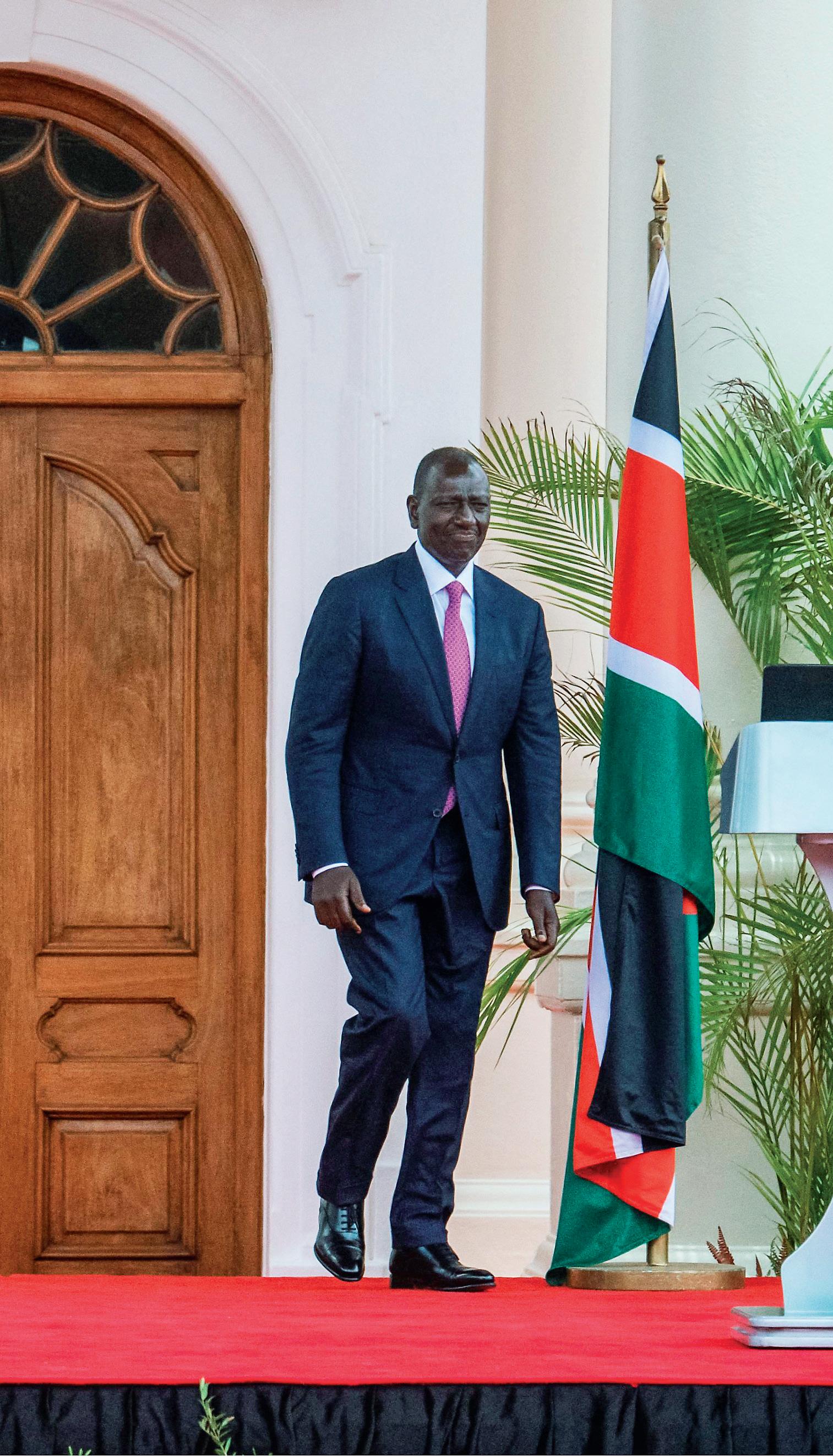
A G-20 seat would give one of the fastest-growing regions of the world a bigger voice on key issues, such as climate change.
The choices of Ethiopia, as the seat of the AU, and Kenya, as one of the AU’s most influential members, were certainly informed by Germany’s push for a more influential African position in international affairs, Nantulya said.
“African countries tend to have
objections to the dominance of Western European powers and the United States in international relations and therefore sometimes support Russia and China, whom they believe are putting up a challenge—irrespective of what that challenge looks like,” he said.
At the same time, African countries largely view post-Soviet Russia as “the successor” of the Soviet Union, whose record in supporting the fight for African independence and the battle against white minority rule in Southern Africa and apartheid in South Africa and Namibia is well-established.
“These memories are firmly etched in the political mindsets and attitudes of modern-day Africans and should not be dismissed,” Nantulya said. “This explains in part African states’ voting behavior at the U.N. when it comes to votes involving Russia and its re-invasion of Ukraine.”
The only way out is for African countries, Europe, and the United States to have “an open and frank dialogue about their historical and contemporary grievances and to validate those grievances,” according to the researcher.
While in Ethiopia, the German chancellor met with Prime Minister Abiy Ahmed and the interim leader of the Tigray Region, Getachew Reda, and discussed progress in ensuring peace after a two-year war that has left at least 600,000 people dead.
He also met with AU Commission Chair Moussa Faki Mahamat and discussed the latest developments in Sudan, economic cooperation, and global challenges.
While in Kenya, Scholz discussed trade relations and how to end the ongoing conflict in Sudan, as well as Kenya’s renewable-energy success story with President William Ruto.
Scholz also visited Africa’s biggest geothermal plant, at Lake Naivasha, in the geologically active Great Rift Valley, which is key to Kenya’s plans for producing green hydrogen.
“We don’t have any volcanic regions like this in Germany, but we have many areas and landscapes that have potential for geothermal energy,” he said.
“It is also something that we can use in Germany, and we will do so. Because there is a lot of potential in this way of producing energy in a climate-friend-
ly way. Geothermal energy is possible in many more places in Germany than people think today.”
The government in Berlin is convinced that Europe can make a better partnership with Africa than China, even as Kenya and Ethiopia have been among the recipients of China’s largest loans to the continent.
That includes funding for Kenya’s largest infrastructure project since becoming independent—a railway line between Nairobi and Mombasa that has since run into refinancing troubles.
During his talks in Ethiopia and Kenya, Scholz discussed the challenge of debt reduction and China’s role in those efforts.
Africa is the largest regional component of China’s controversial $1 trillion Belt and Road Initiative to reset global commerce. However, the project has sparked a backlash from African leaders who say it’s creating an unsustainable debt issue while enslaving the people of Africa.
China’s role as the primary lender for many developing nations has increasingly become part of the wider strategic competition with the United States for global influence.
minerals—given its large auto industry.
“That’s where they might conflict with China—which, as we all know, has a lock on most strategic minerals required for [electric vehicle] EV production,” he said.
Kevin Jessip, president of Global Strategic Alliance, concurred and noted that with tensions at a fever pitch as the Indo-Pacific region heats up over cross-Taiwan Strait tensions—and geopolitically due to Russia’s war with Ukraine—Germany now finds itself “very dependent” upon China with its economic cooperation regarding various issues, such as food security and climate change.
“Germany is not the only country that finds itself too dependent on China,” Jessip told The Epoch Times in an email.
“Chancellor Scholz’s trip was controversial.
“Despite objections from many of his cabinet and ruling coalition, he pushed through a controversial deal to allow the Chinese state-owned shipping company Cosco to purchase nearly 25 percent of Hamburg’s port terminals, which continues to expand the supply chain of global ports globally controlled by the Chinese.”
The EU and the United States have each touted alternatives to the BRI, but both programs rely on private lenders, making their prospects uncertain.
Germany and other European countries view the regime in Beijing increasingly as a strategic competitor and are struggling to reduce their economic dependencies on China, a lesson learned from their overreliance on Russian energy.
Tibor Nagy, former U.S. assistant secretary of state for African affairs, hinted to The Epoch Times that Germany is “much more interested” in expanding economic relations with Africa, especially strategic
Jessip bemoaned Africa for its inability, in many cases, to show “accountability” and “transparency” with certain European and U.S. funds allocated to the needs of the intended peoples.
“In the recent Equity for Africa Conferences hosted by Liberty University in the United States—attended by presidents, vice presidents, prime ministers, ministers of finance, businesses, and parliamentarians alike—there is now a cry for China to be replaced as the BRI has only caused a new and unsustainable debt load which is being leveraged for the nations mineral rights and other national assets,” he said.
Germany is ‘much more interested’ in expanding economic relations with Africa, especially strategic minerals, given its large auto industry.
“The European Union will make an effort to invest in Africa, although Scholz went alone and not in coalition with other EU partners.”
Teniola and Nantulya agree that Africa could make significant gains if its leaders can navigate the competition of outside powers wisely, with the determination to maximize the benefit for their own countries.
“African countries should not choose one partner at the expense of another, but should strategically navigate the various interests while leveraging for their own needs,” Teniola told The Epoch Times.
“There are things that the Chinese do well, that Western countries will struggle with.
“For example, the Chinese generally have a higher deployment speed when it comes to executing projects. On the other
hand, Western partners bring on board stronger accountability measures and more development financing that cuts across social sectors in African countries.

“Western partners are also critical to Africa’s green transition, both as a source of expertise and for climate financing.”
$1
financing packages, he said.
“This is a good thing for Africa because it increases the continent’s options, raises its profile, and plugs more financing to close its huge infrastructure gap of $100 billion per year,” Nantulya said.
“No single partner can close that gap, so there is a lot of room for African countries and private sectors to negotiate arrangements across the different mechanisms that are now in place.”
Before China came in with its BRI, infrastructure financing was basically a “non-starter,” yet the demand for it was “very high,” Nantulya said.
China’s BRI thus “forced” Europe, Japan, and the United States to come through with their own infrastructure
He said the United States, Europe, and Japan have also been “rethinking” their education, professionalization, and human resource development programs in Africa in light of China’s huge packages since the 2000s.
“This, too, is a good thing for Africa,” Nantulya said. “It gives the continent options, increases competition, and delivers more for Africa—as long as African countries negotiate in the public interest.”

VETERANS DOFF THEIR TRADITIONAL BOWLER HATS to the Duke of Kent as they march past during the Combined Cavalry Parade at Hyde Park in London on May 14. Two thousand cavalry troops, veterans, and cadets marched with military bands to honor members of the Cavalry and Yeomanry who fell in World War I and subsequent conflicts.
 PHOTO BY LEON NEAL/GETTY IMAGES
PHOTO BY LEON NEAL/GETTY IMAGES
MI ll I ons o F working-age Americans between the ages of 56 and 64 are edging closer to retirement without having savings stashed away.
Only about 58.1 percent of American baby boomers—generally defined as those born between 1946 and 1964— owned a retirement account three years ago, at a time when the COVID-19 pandemic upended jobs and the global economy, census data for 2020 show.
That means that more than two-fifths of baby boomers nearing retirement had no retirement savings stored in financial institutions.
The U.S. Census Bureau defines retirement accounts as 401(k), 403(b), 503(b), Thrift Savings Plans, individual retirement accounts (IRAs), Keogh accounts, and defined-benefit and cash balance plans.
The census data also reveals that just 56.1 percent of Generation X members, or those aged between 40 and 55, had a retirement account in 2020, while roughly half of millennials ages 24 to 39 had one.
Meanwhile, just 7.7 percent of Americans who fall under the Generation
Z category—meaning those aged 15 to 23—owned retirement accounts in 2020. However, given their ages, they also have more time to accumulate additional retirement savings.
A separate report from the TransAmerica Center for Retirement Studies found a similar trend, noting that baby boomers have been “susceptible to employment risks, volatility in the financial markets, and increasing inflation—all of which could disrupt their retirement plans” in the wake of the COVID-19 pandemic.
That report is based on an online survey conducted between October 28 and December 10, 2021, among a nationally representative sample of 5,493 workers aged 18 or over at a for-profit company employing one or more employees.

It found that just 23 percent of baby boomers feel “very confident” that they can fully retire with a comfortable lifestyle, while 48 percent are “somewhat confident.” About 16 percent are “not too confident,” and 14 percent are “not at all confident” that they will be able to enjoy what they consider to be a comfortable
lifestyle after retiring from the workforce.
Just 22 percent said they believe they are currently building a “large enough retirement nest egg,” while 34 percent said they “somewhat disagree” or “strongly disagree” that’s the case.
Overall, the TransAmerica Center found that 85 percent of baby boomers expect Social Security income to be one of their sources of income after they retire, while 78 percent plan to use self-funded savings.
When it comes to their primary source of income in retirement, though, about 40 percent cited Social Security, the report found.
The average monthly Social Security check to a retired worker in February was about $1,782, or about $21,384 annually, according to the Center on Budget and Policy Priorities.
However, statistics from the U.S. Bureau of Labor Statistics (BLS) show that a U.S. household headed by someone aged 65 and up spent an average of $48,791 per year, or $4,065.95 per month, between 2016 and 2020.
The average Social Security payment to a retired worker in February was about $21,384 annually. However, statistics show that U.S. households headed by people aged 65 and up spent an average of $48,791 per year.
Meanwhile, households headed by someone between the ages of 65 and 74 spent $53,916 annually during that same time period, while spending declined to $41,637 annually for people aged 75 and older.
Those nearing retirement, aged between 55 and 64, spent $65,392 annually between 2016 and 2020, the data show. That’s far more than the $21,384 they are set to receive annually from Social Security.
Amid inflation, the cost of living has soared, and American households spent $5,111 per month, on average, in 2021, according to the Consumer Expenditure Survey from BLS.
As of 2023, that figure stands at $5,577, or $66,928 per year, BLS data show.
“With Social Security, you should hope for the best but prepare for the
worst,” Dave Goodsell, executive director at the Natixis Center for Investor Insight, told CBS News.
“What people need to do—the bottom line—is take a minute to step back and say, ‘What do I need to retire, what will my income be,’ and then start saving.”
The latest data come as the OASI Trust Fund, which pays monthly benefits to retired workers and their spouses and to survivors of deceased insured workers, is “projected to become depleted in 2033, one year sooner than last year’s estimate, with 77 percent of benefits payable at that time.”

That would mean huge cuts in benefits to the 67 million retired Americans who receive Social Security checks each month.
In response to the current volatile economic environment, more baby boomers expect to work past the age of 70 or not retire at all, data show.
The TransAmerica Center found that the main reasons Americans aged between 56 and 64 cited for either working later or sticking with work were financially related (82 percent) or healthy aging-related (78 percent).
However, just 59 percent of baby boomers said their employers are age-friendly and provide opportunities, work arrangements, and training and tools needed for employees of all ages to be successful, meaning a backup plan is still important.
“Obstacles baby boomers have faced in saving for retirement include extremely low interest rates on fixed income investments, the dot-com crash, the real estate/financial crisis, the pandemic, and, more recently, 40-yearhigh inflation,” David Rosenstrock, director at Wharton Wealth Planning, told Fortune Recommends.
“In addition, rising health care costs, increasing life expectancy, caring for aging parents, the potential for reduced Social Security benefits (in the future), and labor force automation are all obstacles to saving,” he said.
Rosenstrock recommended that Americans delay tapping into their Social Security benefits at the age of 62 to avoid seeing a reduction in the amount they are eligible for and take advantage of “catch-up contributions” with which individuals aged 50 or older can save more in their 401(k)s and IRAs than the typical annual contribution limits set by the IRS.
Additionally, Rosenstrock suggested that some Americans consider working even after they retire, either in a partor full-time capacity to supplement their income.
“Delaying retirement can have a significant impact on retirement finances by giving your existing retirement savings more time to grow and shortening the period of retirement you will need to pay for.”
23%
JUST 23 PERCENT of Baby Boomers feel “very confident” that they can fully retire with a comfortable lifestyle.

ook I ng B ack at F our decades o F her life, Jami Smith struggled to recall a moment when she felt genuinely happy. She had a troubled childhood filled with abuse and harassment from the people she held dear. From the age of 9, she began experiencing chronic menstrual pains. Problems piled up as she grew older. At 40, her list of health issues was so long that she says her medical record made doctors gasp.
As a mother of six, she barely had enough energy to take care of the children. Migraines plagued her for weeks at a time, sometimes so severely that she would start vomiting as soon as she stood up. Her body would bruise easily, even from simple things such as lifting a pot or crossing her legs. Supplements made her sick. Lying on her left side at night, she listened to her heartbeat. It was so weak that she more than once wondered if it would stop in her sleep.
Day after day, Smith dragged herself through the motions. She got up early to make breakfast and set up homeschooling assignments for the younger three children. Then, she would be right back to bed, wincing in pain.
It bothered Smith that she couldn’t get up to take care of her loved ones and “be there for them.” She wondered if she had anything worth living for.
“At times, I would be in so much pain, I almost wanted to die. It was so miserable,” she told The Epoch Times. “I didn’t understand what the purpose was. I couldn’t take care of my family, so why keep going?”
Sitting on the bedroom floor one day, she cried out to the universe for help—to be a better mother, to be a healthy and happier person, and to make sense of the suffering in life.
“Why do I keep suffering like this? Why is life so hard for me? Why is my quality of life so miserable? I was trying to be a good person, I had that wish to do that, but I didn’t totally understand how to do it,” she said.
An answer did come, although Smith didn’t know it immediately.
Jami Smith with her chilldren in Moab, Utah, in September 2022. Smith used to have many health issues that prevented her from being able to take care of her loved ones.
 PHOTO COURTESY OF JAMI SMITH
PHOTO COURTESY OF JAMI SMITH
About a week or two after she made the plea, Smith stopped at a cultural event out of town, where her family was handed several lotus flowers and a flyer about Falun Gong, a spiritual practice involving a set of meditative exercises and teachings based on the values of truthfulness, compassion, and tolerance.
The flyer hung on a magnetic board in Smith’s kitchen for months as she tried different healing methods, such as tai chi, although none had a lasting effect. In her continued search for a
values of truthfulness, compassion, and tolerance
Jami Smith meditates with her children in the front yard of their house in Springville, Utah, in May 2020. Since Smith began practicing Falun Gong, her health issues gradually melted away.

cure, she came across a video about the fact that Falun Gong, which was practiced by an estimated 70 million to 100 million in China, was being persecuted by the Chinese Communist Party.
Smith found the flyer that had been sitting there and recognized the name. The next thing she knew, she was reading a book explaining the principles of Falun Gong and trying the exercises, during which she says she felt a kind of electricity going through her hands and arms.
“To me, that was something huge—a recognition that this is something real,” she said. And all that time, “I had continued to search not realizing what I was searching for was hanging in my kitchen.”
A decade before Smith, acupressure therapist Linda Campbell first learned about Falun Gong and the persecution of its adherents in China through a client. So when she saw a Falun Gong meditation class being offered three years
later, Campbell decided to check it out.
Campbell, who lives in Sonoma County, California, still remembers that community center classroom near her home looking out onto an oriental-style garden with ornamental stones. After learning the exercises, the assistant there handed her an introductory book that she finished within three days. She then read the practice’s main book, “Zhuan Falun.”
Reading that text took a lot longer but left her “just in awe.”
“The book covered so much,” she told The Epoch Times. “All my life, I had been studying and looking into different kinds of metaphysical things” for answers about life and the universe, “and it was all in ‘Zhuan Falun.’”
It made her feel more solid and comfortable with life—as if she had “come home to something.”
“When anything comes up, I just know that there is an answer to everything, and there is going to be a way through it,” she said.
Saying that is easier now for Campbell com-
pared to eight years ago, when she was confronted with a months-long ordeal.
It began with her neighbor asking to rebuild a shared, battered wooden fence. Campbell, who agreed to the plan and to split the cost, was vexed by the finished project. In place of the once-straight line was a crooked fence angling downward, looking clumsily out of place from her kitchen window.
To Campbell, who had worked from home most of her life and enjoyed visual harmony and balance, the fence was a constant source of irritation. She felt wronged and despondent, believing the builder and the neighbor had worked together to make her life miserable.
It took her about eight months to turn her thinking around.
Failing initially to persuade her neighbor to redo the fence, she devised ways to mitigate her view. She installed a custom-made window covering to obscure her view of the fence, and planted bushes along the fence to further hide it.
Once she stopped focusing on her own feelings, the fence ceased to be a problem. In the end, her neighbor declined to let her pay and covered the entire expense—which roughly came down to what she paid for the window covering.
“Everything just ended up seeming like it was such a small issue—there were solutions to all parts of it,” she said. “It wasn’t a big thing, and I had made it this huge, huge issue.”
Now, if faced with a similar challenge, Campbell has a different way of handling it.
“It might bother me, but I would figure it out,” she said. “I would see if I was putting myself first or if I was thinking of others, and if I was just being selfish or attached to getting my own way.”
A month before the pandemic hit, Nick Haley, a college junior studying biomedical sciences at the University of Cincinnati, was considering dropping out of school.
Haley had gone on a cross-country road trip to California the previous summer, traveling through snow-capped mountains and deserts to escape the world, hoping to figure out what he wanted in life.
Despite all the scenic attractions checked off his list, he felt the trip fell short of what he’d expected.
“I felt that if I had this experience, I’d feel fulfilled, but it was never quite as satisfying as I’d hoped it would be,” he told The Epoch Times.
Haley kept looking, although not exactly sure what he was looking for. He looked into yoga,
took a class on Buddhism, and read about stoicism and the classic Chinese text Tao Te Ching.
Then, in the week after he dropped out of school, a co-worker introduced him to Falun Gong.

“It was almost like being plugged in,” he said, recalling his experience of reading a Falun Gong teaching for the first time on his phone. “It was really relieving, and I felt like I had just come up for air after being underwater for a really long time.”
Right from the second paragraph, he found an answer to his search.
“It’s all about working on your character,” he said. “It was just very clear that’s what it was all about. It was about working on yourself. And that was the purpose.”
In high school, Haley had felt disappointed when his religion teacher couldn’t explain why people suffer like they do if gods look after them. While still in grade school, Haley’s parents began a years-long divorce battle that left the two unable to be at the same events for years.
“I showed more compassion and it didn’t blow up, and it didn’t escalate into something that it would’ve before.”
Jami Smith, Falun Gong adherent
Haley struggled to forgive both of his parents as he was growing up. But since practicing Falun Gong, he said, his thinking changed.
“I realized how difficult it was to change my own mindsets on things and my own imperfections, and that helped me let go of a lot of the resentment I had about my parents’ imperfections and about the mistakes they made,” he said, adding that painful experiences like those had helped him become more empathetic toward others.
“It was almost like I needed to understand what suffering was to want to help other people.”
While six months pregnant in 1997, Smith was hit by a car while crossing the road. The car hit her in the back so hard that she was thrown into the air, before landing on her tailbone.
Smith’s baby—a boy—didn’t move for several hours, although he eventually was found to be unharmed. Smith, however, suffered serious lower back injuries that kept her in bed for weeks and gave her lasting back troubles. Her back hurt so much that at one point, she fell to the floor in her kitchen, unable to move her legs.
That, in addition to her other health problems, made learning movements no small feat.
In increments of 10 to 20 minutes, Smith practiced the Falun Gong exercises, working her way up to being able to sit through a full hour of meditation with her legs crossed in a double lotus position. At times, she cried because “it was so painful.”
Linda Campbell in her home garden in Sonoma County, Calif., on May 12. Reading books of the practice made her feel more solid and comfortable with life, as if she had “come home to something.”

“When anything comes up, I just know that there is an answer to everything and there is going to be a way through it.”
Linda Campbell, retired acupressure therapist
While she always tried to block the pain out of her mind, it took about a year for Smith to be able to do the hour-long meditation. Meanwhile, she noticed that in her daily life, she no longer experienced the debilitating back pain and could often easily sit with her children.
“It would just dawn on me: ‘Hey, I feel pretty good. This is new. This works,’” she said.
Other health issues gradually melted away, and Smith found herself finally able to “be part of [her] family,” cooking meals for them, laughing together, playing games, and shopping for groceries, something that used to give her anxiety.
One consequence of the 1997 car accident was her fear of driving. If someone cut her off on the road, she would hold tight to the steering wheel in panic. That fear eventually dissipated as she continued to practice the exercises.
During a 1 1/2-hour drive to Salt Lake City this past winter with four of her children, Smith was caught in a heavy snowstorm. It was windy, the visibility was low, and the children were loudly arguing with each other. Smith, instead of panicking, suggested that the children think about something nice they had done for each other.
“That changed the whole drive,” she said. “Everybody was happy the rest of the way.”
Smith has surprised herself in situations like that by applying the mindset of “thinking more compassionately toward one another and reminding each other of that.”
“It’s one of these aha! moments where I just go, ‘Wow, you know, I did that,’” she said. “’I showed more compassion and I didn’t blow up, and it didn’t escalate into something that it would’ve before.’ That happens all the time.”
In the summer of 2020, Haley decided to go back to school.
“I wanted to finish what I started,” he said. “I felt like I just needed to focus on that rather than trying to plan out my whole life.”
Just weeks after graduating, Haley took a job as a research and communications officer for Falun Dafa Information Center in New York. He credited his degree with teaching him the essential skills to do what he needs: diving into unfamiliar subjects without feeling daunted, and knowing that he can learn what he needs to know on the go.

He still enjoys having new experiences, but it’s no longer about the experience itself.
“It’s not like my happiness depends on it anymore,” he said. “It’s just an added life experi-
ence, like a bonus, rather than what gives my life meaning.”
Campbell, who’s now retired, recently went to a World Falun Dafa Day event in San Francisco, to celebrate the 31st anniversary of the founding of the faith, as well as the birthday of Falun Gong’s founder, Mr. Li.
“I just feel like I have this wonderful family,” she said, adding that she felt “so joyful in kind of a quiet way” to know so many people—no matter where they are in life—are all “working hard to improve.”
“All this has just been such a wonderful thing in my life,” she said.
And that fence? Bushy, silver-green shrubs have grown over it.
“You wouldn’t even know that there was a fence behind it or that there was any issue at all.”
“I realized how difficult it was to change my own mindsets on things and my own imperfections, and that helped me let go of a lot of the resentment I had.”
Nick Haley, Falun Gong adherent
ARIZONA

An Arizona police officer’s encounter with illegal immigrants after Title 42 ends
Text & Photos by Allan Stein
Lt. Marco Santana walks along a dirt section used by Border Patrol to monitor activity along the 30-foot-high steel border wall that stretches for miles, in San Luis, Ariz., on May 11.San lu I s , a r I z.—a t I ny flickering glow from a small flashlight gave away the handful of illegal immigrants walking along the border fence in Mexico in the darkness at about midnight on May 11.
Lt. Marco Santana of the San Luis Police Department in Arizona hit the brakes on the pickup truck he was driving and shone his spotlight on the fence, and the movement stopped.
“Hello!” Santana shouted in Spanish.
A lone male voice cried back.
“Stay there! We’re coming over,” Santana responded.
At 11:30 p.m., the night was thick and the ground treacherous getting to the group along the border fence near the U.S. Customs and Border Protection (CBP) port of entry in San Luis.
The 30-foot-high steel border wall stretched for miles, flanked by a dirt right of way used by Border Patrol to monitor activity along the barrier.
Just minutes before encountering the migrants, CBP officials had briefed Santana on the situation in the run-up to the expiration of Title 42.
The Trump-era law has been in place since 2020 to protect against the spread of COVID-19 and other infectious diseases through illegal immigration.
On May 11, the Biden administration declared that the law was over as thousands of illegal migrants from Central and South America made their way to the U.S. border with Mexico.
“We can have an influx of people that could rush into the [San Luis] facility. Our main focus is the protection and security of our community. We’re going to be self-conscious about that,” Santana said.
With CBP agents prepared for the worst, only a trickle of illegal migrants had made it to the port of entry on May 11, with nearly a dozen requesting processing by Border Patrol.

Santana said CBP informed him that about 70 had been released into the country by the next day.
On the other side of the border fence, another drama was playing out in San Luis, Mexico.
In his briefing, Santana said Mexi-
can drug cartels had intercepted 1,000 migrants before reaching the border fence. The cartels took their money and were holding the migrants at various “stash houses” in San Luis.
“This is legitimate information given to people here,” Santana said.
Santana said the cartels engage in human smuggling and shakedowns of illegal migrants in Mexico.
“This is organized crime,” he said. “They release you—and good luck. Without any money.”
Santana described the cartel operation as large-scale kidnapping of illegal migrants using minivans.
Eventually, they would be released into the United States once the cartels had made new arrangements for profit, which could include drug-running.
“They’re taking them, and what they do is collect their money. Eventually, they do pay up and come over here,” Santana said.
In the event of a mad dash across the border at the San Luis port of entry, CBP would shut it if things got out of hand, he said.
Santana noted that local law enforcement would act accordingly to protect the community from criminal migrant elements.
“If these people come in peacefully, [we] keep telling them to go north. There’s nothing for them here. We don’t have the resources to take care of them to help them. I’m sure they’ve traveled thousands of miles. What’s another 24 miles north?” he said.
The small group of illegal migrants that Santana encountered on May 11 included three adult men, a woman, and two girls, from two families. One was from Lima, Peru, the other from Colombia.
In Spanish, the woman told Santana that the group was on their way to Atlanta, and when they arrived, they hoped to stay with her brother, find jobs, and enroll the girls in public schools.
The group’s spokesman, Juan, said the two managed to elude the Mexican cartels after leaving behind violent crime, political corruption, and lives that became untenable in their home countries.
“We slept on the ground and have not eaten in days,” Juan told Santana.
“There is so much corruption and no way of life where we come from anymore—too many deaths. We couldn’t even get work. We were being extorted by the mafia.”
Juan said the group plans to connect with Border Patrol agents for processing and to procure rides to Atlanta.
In Texas, state National Guard members are assisting Border Patrol at
ports of entry, encountering thousands of illegal migrants attempting to cross the border.
On May 11, the last day of Title 42, the Arizona House of Representatives’ Republican Majority Caucus issued a statement accusing the Biden administration of neglecting to protect U.S. citizens by allowing the mass influx of illegal immigration.
“It’s deeply disturbing that any sitting president would endanger border states and neglect to protect American citizens from being overrun by the dangerous repercussions of an open and unsecured border,” the Caucus wrote.
“Yet that is precisely what President Biden and his administration have done since taking office.
“With the president’s reckless decision to abandon Title 42—an effective legal policy enabling the United States to turn back illegal immigrants, including those making asylum claims—border states like ours are bracing for a massive wave of additional illegal immigration and criminal activity that will exacerbate the current crisis beyond the breaking point.”
The letter states that law enforcement agencies are spread thin by the “end-
less flood of illegal immigration, human trafficking, and dangerous narcotics.”
Yuma Regional Medical Center, for example, faces a $26 million uncompensated bill for treating illegal migrants, many of whom suffer from life-threatening conditions, according to hospital officials.
“Health care providers are strained, especially in border communities like Yuma where it is a constant struggle to deliver essential services to residents in need of care,” the Republican Caucus letter reads.
In 2021, Arizona House Republicans under then-Gov. Doug Ducey approved a $500 million Border Security Fund to prevent human trafficking and illegal entry into the country, boost infrastructure, and fund the local prosecution of illegals.
The fund earmarked $209 million for these efforts, leaving about $240 million to “counteract the federal government’s negligence on the border and the harm it has in our communities,” according to the letter.
“With each passing day, illegal immigration grows, more deadly fentanyl pours through our borders, more young girls are pushed into border-related sex trafficking, and law enforcement officers are killed in the line of duty—all because A small
leaders of our federal government refuse to protect the nation,” the letter reads.
“We demand that change now. The border must be made safe and secure.”
In San Luis, population 37,333 and one of Arizona’s six busy ports of entry, illegal crossings and requests for asylum occur daily.
At about noon on May 11, an unmarked white bus drove along the right of way amid a cloud of dust, returning minutes later, presumably carrying a busload of asylum-seekers led by an unmarked pickup truck.
“It’s unpredictable,” Santana said of the daily arrivals, even with the efforts of Border Patrol to control it.
On May 11, a lone Border Patrol agent sat in a parked truck outside the border fence in San Luis near midnight.
“How are you doing? All good? Is it quiet?” Santana said.
The agent responded, “Yeah. Luckily. It’s just me on the levy and the other agent.
“For some reason, we don’t have the National Guard helping us out right now. Normally, they’re helping.”
Santana said local police units assist Border Patrol through “Stone Garden,” an operation detail, with two teams working the evening shift on May 11.

San Luis, Mexico, is “very dangerous,” Santana said.

“They [cartel members] kill people every day,” he said. “Right now, there’s a turf war going on for years.
“Our city and Nogales are the two most active in Arizona. This place is crazy in San Luis [Mexico]—they’re killing people left and right. Police officers, too. It’s not uncommon. It’s a mess down there.”
At a local restaurant in San Luis, Arizona, earlier in the day, customers Mike and Sue were having an animated discussion about illegal immigration.
“I see the busing them down in Nogales. There are busloads every day. All over,” said Mike, owner of a producer truck delivery company in Yakima, Washington.
“Texas is terrible.
“They could stop it tomorrow if they wanted to. I’m in business for myself. All these [migrants] are killing our industry.”
What’s the answer?
“Finish the wall,” Mike said.
“Finish the wall,” Sue echoed.
group of illegal immigrants from Peru and Colombia stand on the other side of the southern border fence in Mexico near the port of entry in San Luis, Ariz., on May 11.
The cartel operates as largescale kidnapping of illegal migrants using minivans, Lt. Marco Santana says.
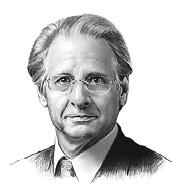



Powell’s Fed hasn’t done enough to conquer the Biden inflation
IF you’re look I ng F or a spirited argument in favor of preserving and perpetuating the independence of a central bank from political pressures and the whims of the mob, you won’t find better than the words of none other than Federal Reserve Chairman Jerome Powell.
“Long experience, in the United States and in other advanced economies, has demonstrated that monetary policy is most successful when decisions are rendered independent of influence by elected officials,” Powell said in 2015 at Catholic University in Washington in a speech on the foolishness of proposals then percolating in Congress to end the Federal Reserve’s insulation from politics. A member of the Fed’s Board of Governors, it would be three years before Powell would become Fed chairman.
“As recent U.S. history has shown, elected officials have often pushed for easier policies that serve short-term political interests, at the expense of higher inflation and damage to the long-term health and stability of the economy,” he added.
But has Powell practiced what he preached? A Gallup poll published on May 9 suggests he’s taking exactly the kind of heat you would expect from someone who resists “easier policies.” The percentage of the public having “a great deal or fair amount of confidence” in Powell is down seven points from a year ago.
“The 36% rating for Powell is the lowest Gallup has measured for him during his six years as Fed chair. It is also the lowest reading Gallup has had for any prior Fed chair,” the pollster reported.

Before getting too carried away with these findings, let’s bear in mind the sad fact that the average American doesn’t really know what the Federal Reserve is or does. A year ago, an Axios/
Ipsos poll found that only 34 percent of American adults even know that the Fed is tasked with stabilizing prices.
One in 5 admitted they know nothing about the responsibilities of the Federal Reserve; another 33 percent said they didn’t know very much; and 38 percent said they know just a little; a mere 7 percent of adults claimed they know a lot about the Fed’s functions. Nearly half—47 percent—were under the false impression that Congress has to approve any action the Federal Reserve takes.
Pramila Jayapal (D-Wash.), wrote to Powell claiming that his policies could “throw millions of Americans out of work,” They accused him of “overreaction” and called on him to “respect the Fed’s dual mandate to promote employment as well as fight inflation, pause your rate hikes, and avoid engineering a recession that destroys jobs and crushes small businesses.”
It’s exactly the kind of political pressure that Powell vowed he mustn’t cave to. In fact, the Fed under Powell’s leadership has fallen far short of the level of tightening necessary to conquer Biden’s inflation.
In the Gallup survey showing a lack of confidence in Powell, he was lumped in with the same questions regarding President Joe Biden, Treasury Secretary (and Powell’s immediate predecessor in chairing the Fed) Janet Yellen, and Democrat and Republican leaders in Congress.
Faced with the worst inflation since the days of lines at gasoline stations in the 1970s, what has Powell done? On May 3, the Federal Open Market Committee implemented a modest increase in the Federal Funds rate that applies to interbank lending by 25 basis points up to the 5 to 5.25 percent range, stating that that may be it in its series of interest rate hikes designed to fight inflation. It was the Fed’s 10th interest rate increase over a period of little more than one year.
Early this month, far-left Democrats, led by Sen. Elizabeth Warren (D-Mass.) and Congressional Progressive Caucus Chairwoman Rep.
As Mickey Levy, chief economist for Americas and Asia at Berenberg Capital Markets, and Michael Bordo, director of the Center for Monetary and Financial History at Rutgers University, reported in a paper presented to the private Shadow Open Market Committee last month, “Despite the Fed’s significant rate increases, the real Federal Funds Rate is still negative, which by historical standards suggests the Fed remains accommodative.”
Powell, eight years ago, said, “The Congress has wisely given the Fed the tools it needs to implement monetary policy and respond to future crises, as well as crucial independence to do its work free from short-term political influence.”
Unfortunately, Powell hasn’t used those tools to anything approximating a heroic extent. Literature may offer some apt comparisons: Not unlike the angst-driven wanderings of Holden Caulfield in “The Catcher in the Rye,” or serial party thrower Jay Gatsby’s ambitions ultimately reaping dissatisfaction and disappointment, or even Gatsby’s unobtainable Daisy Buchanan’s boast that she would always “wait for the longest day of the year and then miss it,” Jay Powell’s pathetic role is that of anti-hero on the Washington stage.
A Gallup poll suggests Powell’s taking exactly the kind of heat you would expect from someone who resists ‘easier policies.’
ANDERS CORR is a principal at Corr Analytics Inc., publisher of the Journal of Political Risk. He is an expert in political science and government.

Europe’s posI t Ion on China has long been soft, which is a problem for U.S. foreign policy since channeling Beijing away from territorial aggression and human rights abuse requires coordinated action against China’s economy by as many as possible of the world’s largest economies. Recent moves by Germany, France, and Italy show progress in this regard.
If the United States sanctions and tariffs China without getting similar measures from other G-7 countries, for example, China could just shift its trade away from the United States toward Europe and Japan. That would isolate America economically and politically by giving Beijing increased economic influence among our allies.
The G-7—composed of the United States, Japan, Germany, France, the United Kingdom, Italy, and Canada— includes the world’s biggest democratic economies and will attempt to avoid that pitfall by more closely coordinating China policies at its current meeting of the finance ministers, which started on May 19 in Japan.
Most G-7 countries currently send mixed signals to China by dangling the carrot of cooperation. This attempt at appeasing the Asian superpower satisfies domestic business interests, seeks Beijing’s assistance in curbing Moscow’s war against Ukraine, and attempts to create political capital to pressure the Chinese Communist Party (CCP) against an invasion of Taiwan.
French President Emmanuel Macron’s visit to Beijing last month and the statement that France wouldn’t be a “vassal” on China issues or overly dependent on the dollar was the most obvious example.
He’s attempting to make Europe strategically autonomous from the United States and into a “third pole”
of the international system. But Brussels is arguably already a third pole, and Macron quickly retreated from his pro-China talking points after China’s ambassador to France embarrassed him by denying the sovereignty of Ukraine and other post-Soviet republics.
Lithuania for its support of Taiwan resulted in the European Union’s authorization of retaliation against any country, including the United States or Turkey, that attempts to use economic coercion against an EU member state.
Now, European countries are primarily upset with Beijing over its support of Moscow’s war against Ukraine. Leading EU members are tentatively starting measures to effectively decouple from China under the more palatable name of “smart de-risking” of trade. As decoupling happens gradually in any case, “de-risking” is a little different than decoupling in its practical next steps.
The foreign ministers of France and Germany jointly pressed Beijing on May 10 to use China’s prodigious influence with Moscow to encourage Russia’s withdrawal from Ukraine. They supported “de-risking” and “limiting excessive dependencies” on China but hastened to say this isn’t “decoupling.”
In early May, Italian Prime Minister Giorgia Meloni assured U.S. House Speaker Kevin McCarthy that she favors exiting China’s Belt and Road Initiative (BRI). During her election campaign last year, she said Italy’s entry into the BRI was “a big mistake.”
Italy is the only G-7 member that’s also a member of the BRI. The prime minister said that withdrawing from the BRI is now on the table. She must make a decision before 2024, when the membership automatically renews without three months’ notice of withdrawal.
The relationship between Europe and China began to rupture in 2021 when Brussels decided against an investment pact with the country after tit-for-tat sanctions over the Uyghur genocide. The pact allegedly favored German manufacturers, including Volkswagen.
Last year, Beijing’s heavy-handed attempts at economic coercion against
Those include restrictions on the export of Europe’s most powerful Dutch computer chips, which have dual military uses, including for artificial intelligence and supercomputing.
The dangers of economic dependency on aggressive autocrats were illustrated when Moscow canceled energy exports to Europe in an attempt at pressuring Brussels into not opposing the war in Ukraine. Moscow’s gambit failed but alerted Europe to the danger of trade dependency, including on China.
Countries and companies that have allowed themselves to support the CCP and its genocidal and territorially aggressive policies through trade in the past should be expected to pay the greatest costs from decoupling now. Trading with the adversaries of democracy should entail costs now to deter unethical trading in the future.
Italy and other NATO allies, friends, and partners should be expected to withdraw from all China-led organizations immediately, including not only the BRI but the Regional Comprehensive Economic Partnership and the Shanghai Cooperation Organization. India, South Korea, Australia, Japan, the Philippines, and New Zealand should take note.
Most G-7 countries currently send mixed signals to China by dangling the carrot of cooperation.
MILTON EZRATI is chief economist for Vested, a contributing editor at The National Interest, and author of “Thirty Tomorrows” and “Bite-Sized Investing.”

Even if Washington hits the debt ceiling, it doesn’t mean default
Treasury secretary
Janet Yellen has warned again (and again and then again) about the dire approach to Washington’s debt ceiling. She has told the nation that the prospect is near and that it could cause the country to default on its debt, an event, she adds, that would bring financial and economic chaos.
Media outlets and others in the political establishment have echoed her comments and fanned the flames of fear. Default would, of course, bring financial and economic chaos, but it’s far from an inevitable result of a debt ceiling constraint. Washington has confronted debt ceiling problems many times in the past and has never come near default. The good secretary might explain that fact.
To see why this matter isn’t nearly as terrifying as it seems in the secretary’s rhetoric and so many media outlets is to recognize that Washington will continue to have a revenue flow even if it hits the debt ceiling. The government may rely too much on debt, but it doesn’t rely exclusively on debt.
According to the latest White House budget, taxes and fees support almost 80 percent of the government’s annual spending. This revenue flow would then presumably allow the government to carry on with some 80 percent of its activities even if it couldn’t issue a penny in new debt. That flow from taxes and fees amounts to $4.9 trillion annually, ample financial resources to continue most government activities.
If past experience is any guide, Washington, confronted with a debt ceiling and needing to carry on with only the cash flow from taxes and fees, would set spending priorities. One would include the payment of principal and interest on govern-
ment debt. According to the recently released White House budget, that need will take some $665 billion this year, or 14 percent of the total tax and fee revenue flow. The remaining $4.2 trillion would go to other essential government services, such as Social Security and Medicare, law enforcement, including federal courts, the armed forces, and the like. National parks and monuments might close until Congress gets its act together. Some government employees might face temporary furloughs. But there would be no need for default or to face the ensuing disaster that seems to occupy so many imaginations, including that of Treasury Secretary Yellen.
defaulted despite hitting the debt ceiling several times in the past—21 times, in fact, during the past 50 years. The time between hitting the debt ceiling and legislation to relieve the constraint varies from incident to incident. Sometimes, it is only a few hours, as in 1982 and 1984 under the Reagan administration. Sometimes, the time to resolve matters lasts longer—18 days, for example, in 1978 under Jimmy Carter and 16 days under Barack Obama in 2013. The longest stretch was 34 days between December 2019 and January 2020 during the Trump administration. But the nation never came near default.
To be sure, the cost of debt service only accounts for the interest on the outstanding debt. Bonds will also mature and need refinancing. Even in this case, the debt ceiling would not interfere. Consider that every maturing bond would reduce the government’s outstanding debt, bringing the number below the ceiling and allowing Washington room to issue new debt to pay off the holders of that maturing bond, which incidentally is Washington’s usual practice. The ceiling would only constrain adding to the existing level of debt.
This simple arithmetic explains why the United States has never
In a pinch, though it would be a first, the government could tap the Federal Reserve’s $5.2 trillion portfolio of Treasury debt. That’s almost a full year of federal spending. The Fed could simply forgive all or some of this debt, a drastic move to be sure, but since, for practical purposes, the Fed is part of the federal government, such an act would amount to little more than moving money from one pocket to another. Ultimately, such a use of funds could have inflationary effects, but that matter is separate from default.
Considering that the House of Representatives has already approved a compromise proposal to allow a rise in the debt ceiling and President Joe Biden has at last shown a willingness to negotiate, the duration of the incident this time will likely be shorter than much of this historical experience.
As in the past, the standoff will end when one side or the other realizes that it will get the political blame for the interruption in some government services. Then Congress will rush to a compromise. Even if that takes a while, the dreaded default will not occur.
Default is far from an inevitable result of a debt ceiling constraint. Washington has confronted debt ceiling problems many times in the past and has never come near default.

Business leaders oppose the EPA’s new power plant rules
The B I den adm I n I stration released its toughest-ever rules for power plants, drawing backlash from the country’s largest business organization.
The U.S. Chamber of Commerce issued a statement on May 11 urging the administration to propose more reasonable carbon reduction goals for power plants to avoid disrupting the future power supply.
The Environmental Protection Agency’s (EPA’s) proposed power plant rules require steep pollution cuts from the U.S. power infrastructure, which uses natural gas and coal, the largest sources of the nation’s electricity generation.

“EPA’s new powerplant regulations go too far, too fast,” Marty Durbin, president of the U.S. Chamber of Commerce’s Global Energy Institute, said in a statement.
“Regulations must be grounded in what is technologically feasible and commercially available. Going beyond that, as this regulation does, could threaten electric reliability and raise energy prices to unsustainable levels, harming the entire economy.”
According to EPA officials, the new standards aim to meet President Joe Biden’s 2035 target for carbon-free electricity. The draft rules mandate that most power facilities that use fossil fuels begin capturing 90 percent of their carbon by 2030 or 2035, or shut down.
“We call on EPA to reconsider its proposal by adopting a more rational approach that better balances electric reliability and affordability with carbon reduction goals,” Durbin said.
With the new standards, the EPA wants to encourage U.S. power plants to increase their use of certain technologies, including the co-firing of fossil fuels with low-greenhouse gas hydrogen and, in particular, carbon capture, sequestration, and storage.
The proposed rules are subject to
change based on feedback from the energy sector, labor unions, and other constituencies. Once the regulation is published in the Federal Register, there will be a 60-day comment period.
The proposal comes amid a flurry of major EPA actions involving fossil fuels, such as new tailpipe emission standards.
A few weeks ago, the agency also proposed more stringent emission limits for coal plants to reduce mercury emissions and other air pollutants. It has recently targeted methane leaks from oil and gas drilling sites as well.
In response to the concerns expressed by the Chamber of Commerce, the White House stated that the administration is focused on reaching its climate goals without disturbing the economy’s momentum.
“We’re doing three things: We’re building the team, we’re getting the money out the door, and then we’re trying to tell the story. Everything requires a balance. It’s all about timing.
It’s all about focus,” White House In-
frastructure Implementation Coordinator Mitch Landrieu said in response to The Epoch Times’ question during a White House press briefing.
“With everything that we do, somebody will say, ‘You’re going too fast.’ Somebody will say, ‘You’re going too slow.’ Our job is to try to get it just right and to make sure that this economic boom that we’re having is steady and stable and that we continue to grow.”
Fossil fuels are still the primary source of energy for electricity generation in the United States. About 20 percent of U.S. electricity comes from coal and 40 percent from natural gas. The rest is generated by nuclear power plants and renewable sources such as solar, wind, and hydropower.
Ahead of the EPA’s announcement, Sen. Joe Manchin (D-W.Va.) criticized the administration’s proposal and its “radical climate agenda.”
“I fear that this administration’s commitment to their extreme ideology overshadows their responsibility to ensure long-lasting energy and economic security, and I will oppose all EPA nominees until they halt their government overreach,” Manchin said in a May 10 statement.
Biden called the plan “a major step forward in the climate crisis and protecting public health.”
Some environmental groups also praised the EPA’s action, stating that it would benefit the climate, the environment, and the communities around the country.
“EPA’s proposal to limit climate pollution from power plants is an urgently needed step toward protecting people from the devastating harms of climate change, from increasingly severe flooding, hurricanes and drought to worsening wildfires,” Fred Krupp, president of the Environmental Defense Fund, said in a statement.
The new standards aim to meet President Joe Biden’s 2035 target for carbon-free electricity.EMEL AKAN is a senior reporter for The Epoch Times in Washington. Previously, she worked in the financial sector as an investment banker at JPMorgan. Nathan Worcester contributed to this report.


Why are European banks equally at risk, or more so?
DeposI ts at u s. commercial banks have fallen to the lowest figure in nearly two years, according to the Federal Reserve. However, total banking credit has risen to a new record high of $17 trillion, according to the U.S. central bank. Less deposits, but more credit. What could go wrong?
Bankers are deciding to take more risk while expecting the Fed to return to a loose monetary policy soon, and the banks are expecting higher net income margins due to rising rates despite the elevated risk of increasing nonperforming loans.
The risk in the banks’ balance sheets isn’t only diminishing deposits on the liability side but also a declining valuation of the profitable and investment part of the assets. Banks are so leveraged to the cycle and the expansion of monetary policy that they simply can’t offset the risk of a 20 percent loss on the asset side, a significant rise in nonperforming loans, or the write-off of the riskiest investments. The level of debt is so high that few banks can raise equity when things get worse.
Deposit flight is happening not because citizens are stupid. The largest depositors are businesses, small companies, and the like. They simply can’t afford to lose their cash if a bank goes into liquidation. Once the Fed introduced the discretionary decision on which banks’ deposits are made whole and which are not, fear took over again.
Investors and businesses in America understand this. However, in the United States, 80 percent of the real economy is financed outside of the banking channel. Most of the financing comes from bonds, institutional leveraged loans,
and private-direct middle market loans. In Europe, 80 percent of the real economy is financed with bank loans, according to the International Monetary Fund.
You may remember in 2008 when European analysts repeatedly said that the subprime crisis was a specific event that only affected U.S. banks and that the European financial system was stronger, more capitalized, and better regulated. Well, eight years later, the European banks were still recovering from the European crisis.
European banks have strengthened their balance sheets with very risky and volatile instruments: contingent convertible hybrid bonds. These look incredibly attractive due to their high yields, but they can create a negative domino effect on the equity of the firm when things turn sour. Furthermore, European banks’ core capital is stronger than
in 2009, but it can deteriorate rapidly in a declining market.
European banks lend massively to governments, public companies, and large conglomerates. The contagion effect of rising concern about sovereign risk is immediate. In addition, many of these large conglomerates are zombie firms that can’t cover their interest expenses with operating profit.
According to the European Central Bank, euro-area banks’ exposures to domestic sovereign debt securities have risen significantly since 2020. The share of total assets invested in domestic sovereign debt securities has increased to 11.9 percent for Italian banks, 7.2 percent for Spanish banks, and close to 2 percent for French and German banks.
This mean’s that the biggest risk for European banks isn’t deposit flight or investment in tech companies, but rather the direct and uncovered connection to sovereign risk. This may seem irrelevant, but it changes fast, and when it does, it takes years to recover, as we saw in the 2011 crisis.
Another distinct feature of European banks is how fast the ratio of nonperforming loans may deteriorate. When the economy weakens or stagnates, loans to families and small to medium-sized enterprises become riskier, and the lack of a diversified and alternative lending system such as that in the United States means that the credit crunch hurts the real economy in a deeper way.
The biggest mistake European authorities and investors can make is to think—again—that “this time is different” and that the banking crisis won’t hit the euro-area system. European banks shouldn’t fall into the trap of thinking that tons of rules will eliminate the risk of a financial system crisis.
European banks shouldn’t fall into the trap of thinking that tons of rules will eliminate the risk of a financial system crisis.
Gold has reached a record high in recent weeks without much attention
The de B t ce I l I ng debate in Washington has been widely discussed but so far, few investors are truly worried.
Most believe that when the deadline arrives, Congress and the White House will reach an agreement— even if it’s to kick the can down the road. As of now, Treasury Secretary Janet Yellen has set the deadline as June 1. There are still a few weeks left, and if history is any indication, no resolution is likely to be reached until the 11th hour.
So far, institutional investors haven’t entirely balked at buying new issue U.S. Treasury bills. During the May 11 Treasury auction, four-week T-bills drew an annualized bond yield of 5.723 percent, a high but not exorbitant interest rate for bonds expiring on June 13. The eight-week T-bills were sold with an annualized yield of 4.793 percent by contrast.
Usually, longer-duration paper will have a higher yield. But this recent disconnect, that the fourweek bills cost more than the either-week bills, reflects some concern that the June 13 T-bills won’t be paid on time while the July 11 paper will. This assumes a new debt deal will be in place by July. But even recognizing that, the 5.723 percent yield is no indication that any catastrophic debt default event is expected to pass.
What should investors do if there is indeed a debt default, or if the debt ceiling fight gets ugly and no deal is in sight?

Gold has approached its record high in recent weeks without much fanfare. That’s an impressive feat given that gold pays no yield and bond yields remain very high. The
gold spot price has climbed by about 10 percent this year through May 12.
There have been a few causes of gold’s recent rise. Global central banks bought 228 metric tons of gold during the first quarter of 2023, according to the World Gold Council. That’s after they collectively added 1,136 metric tons in 2022, a record year. Part of this demand has been driven by certain countries moving away from the U.S. dollar for global trade and potentially establishing a new common settlement currency.
Gold had a previous extraordinary run during the 1970s. President Richard Nixon ended the Bretton Woods system, under which the dollar was converted into gold (at $35 per ounce), in 1971. Gold then eclipsed $850 per ounce by January 1980—a 24-fold
increase. Gold served as an effective inflation hedge during a period of high inflation during the 1970s, when inflation averaged nearly 7 percent during the decade and culminated at 14 percent by 1980.
Silver, which usually outperforms gold in a bull market, has increased by 7 percent to $25.01 this year through May 12. Silver grew from $3 an ounce in the early 2000s and exploded to almost $50 in 2011. At about $25 per ounce today, it remains to be seen how silver will track gold and inflation going forward.
Currently, the Swiss franc has proven itself to be the strongest currency and an FX haven in a volatile year for global foreign exchange market. During the past 12 months, the franc gained by more than 11 percent against the USD, while notching a four-decade high against its traditional currency haven competitor, the Japanese yen, by early May.
Global currency traders have been betting that the Bank of Japan will keep its ultra-loose monetary policy, which will keep the yen weak against a basket of global currencies. The Swiss National Bank, in the meantime, began hiking rates last year.
But is there value in holding Treasury bills or bonds?
Many investors say yes, despite the risk that the United States may not pay its bills on time.
Former PIMCO Chief Investment Officer Bill Gross recently advised clients to take advantage of the 1 percent of extra annual yield on the shorter-term T-bills despite default risk. The assumption is that a deal will definitely be reached even if the U.S. government can’t pay its obligations for a short period of time.
Silver grew from $3 an ounce in the early 2000s and exploded to almost $50 in 2011. At around $25 per ounce today, it remains to be seen how silver will track gold and inflation going forward.
FAN YU is an expert in finance and economics and has contributed analyses on China’s economy since 2015.MADALINA VASILIU/THE EPOCH TIMES
The CCP’s chemical warfare, maritime militia, and plans for Taiwan

The I dea o F lett I ng 23 million free people come under Chinese communist enslavement is not something that sits well with me,” says retired U.S. Marine Col. Grant Newsham, referring to Taiwan.
In a recent episode of “American Thought Leaders,” host Jan Jekielek and Newsham, the author of “When China Attacks: A Warning to America” and an Epoch Times contributor, discussed the Chinese Communist Party’s (CCP’s) techniques of unrestricted warfare, its ongoing deployment against the United States, its plans for expansion in the Pacific and in the world, and Chinese vulnerabilities.
JAN JEKIELEK: You start “When China Attacks” with this scenario of an attack by the Chinese Communist Party on Taiwan. As I was reading, I was charting all these unconventional methods of warfare the CCP utilizes to achieve its objectives. Realistically, will this happen in the near future?
COL. GRANT NEWSHAM: The Chinese want to seize Taiwan. They’d like to get it without fighting, but if they have to, they will. They’ve built up a military that is capable of doing it, but they also need to ensure that the Americans are kept at bay. They’ve got to thread a needle here, because if they go too hard against the United States, it may provoke America to respond with everything they have, and that’s not what China wants. They want to humiliate the Americans just enough to make them worry about what happens if they go all in.
Essentially, it’s the front men in the United States telling whatever administration is in office to hold still. “Don’t respond. We can’t risk nuclear war over little Taiwan, and we want to get back to business as usual.” What
I can see is the Chinese launching an all-out quick hard assault on Taiwan, but not going all out on the United States, not doing another Pearl Harbor attack or hitting the U.S. mainland, and maybe even leaving the U.S. bases in Japan alone.
They do have ways to make life difficult for us, like their fishing fleet, the maritime militia, things that look like civilian weapons or civilian entities, and also their proxies. In just about every country, they’ve got people who put in a good word for them.
MR. JEKIELEK: Why is Taiwan so important to China, and why is it so important to the U.S.?
COL. NEWSHAM: You hear a lot of people say, “Taiwan’s worth more to China than it is to us. It can’t be defended. Just let it go.”
That’s wrong, and there’s an element of maliciousness in it. The idea of letting 23 million free people come under Chinese communist enslavement is not something that sits well with me. But why is it important?
Surprisingly, it doesn’t have so much to do with the high-end semiconductors that Taiwan manufactures. That gets a lot of attention, and yes, it would be an inconvenience, and probably a big one if Taiwan’s semiconductor production was cut. They produce something like 90 percent of all high-end semiconductors.
But I don’t think that’s the main reason. With or without chips, Taiwan is a juicy target for Beijing. It’s part of
the so-called first island chain that stretches from Japan to Taiwan, down to the Philippines, down to Malaysia. If you look at a map, that will tell you a lot about Chinese thinking.
That first island chain hems in the People’s Liberation Army. It makes it hard for them to get into the Pacific to go east. But if China takes Taiwan, they have seized a lodgment right in the middle of the first island chain. Think of a castle wall being breached and suddenly the attackers just pour in and keep going.
If the People’s Liberation Army launches from Taiwan and goes up north, they can surround and isolate Japan. If they go down south, they can isolate Australia, cutting it off from the U.S. and from the rest of Asia.
The Chinese objective is not to just stop at the first island chain. Rather, it’s to go all the way to the west coast of Latin America, where they are setting up the infrastructure, the ports, the airfields, the political influence, and the economic influence they’ll need to deploy Chinese forces in the future. It’s part of the plan.
And suppose Taiwan comes under Beijing’s rule. The message that would be sent is that the U.S. military could not keep the Taiwanese free. In short order, Asia will turn red as countries there realize that an American promise is not what it used to be, and you’re going to see that worldwide as well. We don’t have a particularly good track record in recent times of taking care of our friends. Rather, we tend to leave them high and dry, and there’s a
“You have the climate czar, John Kerry, basically saying, human rights don’t matter.”
point at which a lot of people notice.
MR. JEKIELEK: Please tell us a bit about your background and how you came to study Chinese military capability and intentions.
COL. NEWSHAM: I first started looking at Taiwan and China around 1981, so it’s been 40 years or so. I was with the Marines for 30 years and active in reserve time, and spent a lot of time in the Asia-Pacific. Also, I was a diplomat with the U.S. State Department for eight years, and a lot of that was in Pacific East Asia. I also worked for an investment bank in Japan and for Motorola in Japan and Korea. So, I’ve had decades of experience looking at China and Asia from different perspectives, not just the military, but also from the diplomatic, the financial, and that of high-tech industry.
MR. JEKIELEK: A lot of the unconventional warfare the Chinese Communist Party wages involve all these different sectors.
COL. NEWSHAM: It’s a different concept of war and of bringing your enemy under your control. For the Chinese, a shooting war is the last on the list, if it’s even necessary. Ideally, you’ve weakened your enemies to the point that they can’t respond effectively, or at all. You do this with methods that don’t involve shooting people, although they are willing to do that, or they have other people do the shooting for them.
These are things that to an American or Westerner look unobjectionable, that just looks like business competition. The Chinese look at this as economic warfare. The idea is to drive your opponents or your competitors out of business, to get their technology, suck their know-how out of them, and rig the system in China so that you can build up Chinese companies.
The idea is to dominate the main sectors and just about anything that’s on the Chinese list of things to dominate. You can look at how that has actually worked in the U.S. Once China was let into the World Trade Organization in the early 2000s, despite not meeting any of the requirements that every other country would need, American businesses started flocking to China. China turned into this manufacturing juggernaut.

America’s manufacturing capability—and, more importantly, the jobs and the livelihoods that came with it— disappeared. It’s weakened us, and it’s strengthened China, because the Chinese economy has grown, with many countries growing dependent on it, America not the least. This helps China develop its military as well. It’s a net gain for the Chinese and a net loss for us. There are other lines of attack that China sees as warfare—psychological warfare, biological war, chemical war,
cyberwarfare, and proxy warfare.
Proxy warfare means getting your opponent’s influential people to do your bidding for you. It was very interesting the other day when we saw the CEO of TikTok testifying before Congress. Behind him was a phalanx of Americans who had signed up to do China’s bidding. Money has a way of doing that.
There’s also one more point I wanted to mention as to why Taiwan matters. It is proof that people of Chinese origin can handle democracy, consensual government, freedom of the press, freedom of speech, and all the freedoms we think are important. That is one of the reasons Beijing wants to strangle it, because it is a daily living reminder there is an alternative for China besides Chinese communist rule.
MR. JEKIELEK: Tell us about this concept of comprehensive national power, which the CCP uses to rate it-self against every nation in the world.
COL. NEWSHAM: “Whatever is good for me is bad for you” is the idea. Something that weakens your opponent while strengthening you is ideally what you want. China actually counts all of these wins and successes that they have around the world. They set up and get ownership of some strategic locations or airfields. Everything that is good for China and benefits China is exactly what they want, and they want the other side to go down. If you can weaken your enemy, confuse him, take away his key industries, weaken his currency, and get people to start using Chinese currency overseas, that is a big plus for China’s comprehensive national power and a decline for American national power. They are very much keeping score on this. It’s helpful to remember the ultimate objective of the Chinese Communist Party. Ultimately, it is to get the Americans out of Asia, but also to keep pushing and eventually dominate the region and the globe.
MR. JEKIELEK: What’s the state of the Chinese military? I’ve heard wildly different assessments of their capabilities.
COL. NEWSHAM: People used to laugh 20 years ago at the idea of the People’s Liberation Army attacking Taiwan. It was jokingly referred to as the “million-man swim,” the idea being they didn’t even have the resources to get across the Taiwan Strait.
Nobody is laughing these days. China has a navy, an air force, ground forces, and rockets and missiles. Right now, it’s able to throw its weight around in the region, and the idea is to eventually throw it around globally.
The fix we’ve gotten ourselves into with the Chinese comes from not having taken them seriously enough and
maintaining our edge. We spent so many years in the so-called sandbox in Iraq and Afghanistan, focusing on those kinds of wars, that the Chinese caught up in many areas and surpassed us in some as well.
MR. JEKIELEK: Since we’re talking about maritime capability, there is this unconventional fleet that the CCP has used in a military way, which is essentially their fishing fleet, but which also doubles as a maritime militia. Please tell us how this maritime militia works.
COL. NEWSHAM: These are fishing boats that sometimes do fishing, but they’re also built for double hauls and are up-engined. They have people with arms on them and they use them to ram, intimidate, and sink other vessels, particularly other fishing vessels.
You have this charade that they are not a part of the military and they’re just fishing boats. They’ve used these very successfully in the South China Sea. You can establish a long-term presence in places and drive your opponents out, and they won’t go back in. If you’re a fisherman, there’s no way you’re going to go in and challenge a big boat with a double haul and guys with weapons on it that is willing to ram you and sink you and
shoot you if necessary. The Chinese have a lot of these, in addition to their regular fishing fleet, which sails the seven seas vacuuming up fish.
So, the Chinese have also understood one of the weaknesses of their opponents is that we insist on law and playing by the rules. When somebody doesn’t do it, we’re flummoxed.
Nobody has actually come up with the common sense approach that lets them know that we regard these as naval ships, and we are going to respond accordingly. You can see the advantage that it gives to the Chinese compared to us and others.
MR. JEKIELEK: I’ve recently become more aware of the bullying actions of the Chinese Communist Party to get the leaders of some of these small island chains in the Pacific to play ball, seemingly on course to assuming eventual administrative control. But a few of these leaders have stood up to the behemoth.
In one case, President Panuelo of the Federated States of Micronesia is on record saying that Chinese officials have threatened his life. In this long letter, he describes a host of serious threats to his nation. It’s unheard of anywhere, never mind in a tiny island chain state. What is the significance of this?
“Taiwan is a juicy target for Beijing. It’s part of the so-called first island chain that stretches from Japan to Taiwan, down to the Philippines, down to Malaysia.”
COL. NEWSHAM: President Panuelo had the nerve and courage to say this and writes in great detail about things like the Chinese paying off all sorts of officials and influential people in Micronesia. They’re providing money to secessionist groups in several of the states in Micronesia. It would be like providing money to Texas so they could go independent.
And this is just Micronesia. You have huge Chinese investments where these real estate developers come in and promise billions, and they insinuate themselves commercially. That leads to political influence, and then they pretty much get a lock on the local economy. They create a constituency of people that get a ton of money from the PRC [People’s Republic of China]. They’ve been very effective doing this in the Pacific.
These islands in the Central Pacific are actually in the middle of America’s defenses. We have the first island chain with Taiwan, but the Chinese are setting up behind us. Recently, they have signed a deal with the prime minister of the Solomon Islands that effectively lets the Chinese military into the Solomon Islands. That’s where Guadalcanal was, the World War II battle. The Chinese military will get in there before too long.
MR. JEKIELEK: Let’s talk about one of these unconventional warfare methods in which the CCP has been engaged, which is fentanyl.
COL. NEWSHAM: It’s as clear a case of chemical warfare as you’ll find. China provides about 99 percent of the fentanyl precursors. The raw materials go to Mexico and then get turned into pills and moved into the United States. Fentanyl killed about 70,000 Americans last year. In the entire 12 years of the Vietnam War, 55,000 Americans were killed.
In one year, America lost 70,000
people, many of these of military age, and this is just the ones who died. Then, there are the walking wounded, along with the effect this has on families and society. The costs of dealing with and trying to treat these people are immense. Some figures are over a trillion dollars, depending on where you look.
Think about it. You’ve effectively launched an attack on your main enemy. You’re taking what amounts to a couple divisions of troops off the battlefield every year, and nobody does anything, and you get away with it.
Also, there’s a psychological warfare aspect to this. By getting so many influential Americans convinced that they have to be in the China market, that they need to make money from China, and that we need China’s help with issues like North Korea and climate change, we have tied our hands and will not take on China on the fentanyl scourge.
I’ve heard the excuses that it’s local officials behind the fentanyl and the central government doesn’t know what they’re doing. Once again, that suggests you don’t really know how China works. The law is what Xi Jinping says it is. China could crack down on fentanyl if it wanted to, but I would suggest it doesn’t because it’s been wildly successful in killing us. I don’t know why you would stop if your enemy is not wise enough to stand up for himself.
A retired Navy pilot from Pittsburgh called me up and told me that his adult son had just died from fentanyl poisoning. Of course, he was distraught, to put it mildly. He said, “I tried to get congressmen interested and they really weren’t.” All I could do was listen to him. To ignore it the way our ruling class and elites have, there’s a callousness that just isn’t my thing.
MR. JEKIELEK: I really want to
talk about solutions as we finish up. What can we do?
COL. NEWSHAM: China is very sensitive to its human rights record, where it’s just an absolute atrocity, but then you have the climate czar, John Kerry, basically saying: “Human rights don’t matter. The only important thing is climate change. We’re not going to talk about this with the Chinese. We need their help.”
It’s hard to see how you’re going to win a war or this fight with the PRC if you’re thinking like that.
You need to apply pressure where it’s really going to hurt. One example that I cover in the book is that the Chinese government is absolutely dependent on the convertible currency, U.S. dollars. Without it, they really can’t fund their military or even their economic growth. If they want to fund the Belt and Road initiative, they have to pay in U.S. dollars or something like it.
That can be by manufacturing things in China and selling them overseas. That can be Wall Street pumping tens of billions a year into the Chinese economy, which is a godsend to the Chinese Communist Party. The investment American business puts into China is being used to build their economy, their military, and the so-called comprehensive national power.
There’s a shortage of convertible currency, so here’s what you do. You start cutting them off from the U.S. dollar network. Start with the People’s Bank of China, and revoke its license to operate in the U.S. for six months. That would get some attention.
You have to go up to the highest levels and make them feel the heat. You have to understand their system, realize how to apply pressure and power, then go to the top. We’ll see if that happens.
This interview has been edited for clarity and brevity.
When investing in your retirement, you need a partner you can trust. With Oxford Gold Group, you can be confident you’ll receive the highest quality, care, and service unparalleled by anybody else in the industry.

Our
Life happens, and your needs may change. Modify your investments easily with our no-questions-asked re-purchase program.

Defeat can teach us the secret to overcoming the odds
By Jeff MinickWhen I recently opened a book of meditations given me by a friend, this line jumped at me from the page: “Desperation is better than despair.”
At first, this comparison confused me, as both desperation and despair seem synonyms for hopelessness. But as I thought it over, the distinction between the two became clear to me. Despair is the complete loss of hope. The night is black, there’s not a trace of moonlight, and dawn is never coming. The man or woman truly in despair has arrived at the end of a path, from which there is no turning back, and the way forward has vanished in a dark, impenetrable wood.
Desperation is a sister of despair, the absence of hope, but with one significant difference. Those in despair have surrendered completely to whatever dark forces have oppressed them. The desperate fight on despite their wounds and broken weapons, always with a sliver of hope in their hearts.
History provides examples of this distinction. After the fall of France in World War II, for instance, Winston Churchill, his government, and the British people stood alone against Adolf Hitler’s Third Reich, hanging on to hope by a thread as they fought against what seemed insurmountable odds.
The 2017 film “Darkest Hour” takes us inside this spirit of defiance. In
one scene, Churchill boards a train in London’s Underground and engages the other passengers in conversation. At one point, he asks how they are all “bearing up” in the face of the Nazi Blitz. They voice their defiance, though one of the passengers adds, “Some people say it’s a lost cause.” Churchill immediately replies, “Lost causes are the only ones worth fighting for.”

to view it as coolly and calmly as possible. Desperate times call for desperate measures, yes, but before we place our bets and throw the dice, we should assess with as much objectivity as we can muster what we are trying to accomplish. If nothing else, this means writing out in black and white the causes of our troubles and then making a list of tactics with which we might combat them.
There’s the voice of a man whose cause is desperate but who will never yield to despair.
Most of us have experienced times when we feel at our wit’s end. A marriage on the rocks, a sinking business, a child addicted to opioids; when these and other storms come crashing down upon us, we may feel as if escape, much less a successful outcome, is impossible.
Yet tools are at hand that may help us when all seems lost, if we choose to use them. First, we must resolve absolutely to never give way to despair. Abandon all hope, and you’re a goner. Nil desperandum, the old Latin tag for “never despair,” should be emblazoned on our banner in this fight.
Next, we must take a step back from this battlefield and do our best
Sometimes, too, it becomes necessary to accept defeat—the failed marriage, the failed business—to regroup, and to strike off in a different direction. If we emerge from the mess we’re in with some shred of hope intact, and if we’ve fought the good fight, we can at least set off on that new venture as veteran travelers, seasoned by the trials we have endured. Like failure, desperation can be a teacher if we pay attention in its classroom.
Finally, to help us survive this ordeal, another Latin adage comes to mind, a more positive version of the earlier one. It is the unspoken motto of all those who have ever refused to give up the fight: “Dum spiro, spero,” or, “While I breathe, I hope.”
There’s a watchword that will comfort us through many a dark night.
Desperation can be a teacher if we pay attention in its classroom.
Nestled in the lush, tropical hills overlooking a secluded beach and cove, this resort in Phuket keeps nature at your fingertips.

IF YOU HAVE EVER DREAMED of leaving the city to become a cattle rancher, living and working in wideopen spaces, this property might be perfect. 70
DADS WORK HARD ALL YEAR LONG , so here are some gift suggestions to make Father’s Day special, no matter one’s budget. 76
WINE LOVERS WHO DREAM of having their own winery might be pleasantly surprised to discover there may be a way. 80
Why be all hat and no cattle when you can own a working ranch?
 By Bill Lindsey
Much of the furniture in the main house was crafted by local artisans 100 years or more ago.
By Bill Lindsey
Much of the furniture in the main house was crafted by local artisans 100 years or more ago.
Fans oF the telev I sIon drama
“Yellowstone,” as well as those who simply long for a quiet way of life far removed from the stress of the city, may be intrigued by this property. Located in Cora, Wyoming, roughly 60 miles south of Jackson Hole, Wyoming, the Bar Cross Ranch is a working ranch approximately 12,000 acres in size, plus 23,000 leased acres. The homesteaded ranch dates back to the early 1900s, when it was founded by P.W. Jenkins, a member of the Wyoming House of Representatives. Now, it’s on the market for a price tag of $35 million.

In the 1970s, Jenkins’s grandson, John Perry Barlow, inherited the property. One of Barlow’s more notable hired hands was John F. Kennedy Jr., who worked on the ranch in the summer of 1977. The improvements include the classic Western-style, 4,000-square-foot, four-bedroom, three-bathroom main house with a covered porch, built in 1910 and extensively renovated in 2019; as well as a 1,000-squarefoot, one-bedroom, one-bathroom manager’s house that predates the main house. Other accommodations include the 2,300-square-foot
foreman’s house with two bedrooms and 2 1/2 bathrooms; a 460-square-foot bunkhouse with a one-bedroom, one-bathroom apartment; and a 2,600-square-foot maintenance shop with a one-bedroom, one-bathroom apartment.
Other improvements include two barns, an outdoor arena and pen, and a permanent tented retreat at the nearby national forest boundary. The property features 2 1/2 miles of trout fishing on the New Fork River, eight miles of Willow Creek, a 40-acre lake, and wildlife, including elk, moose, mule deer, and antelope. A gravel airstrip on the property provides access by small aircraft.
The current owners have invested approximately $7.5 million in infrastructure maintenance and capital improvements, including three new headgates for the irrigation system managing the property’s extensive water rights, new corrals, and 60 miles of wildlife-friendly fencing. While it certainly would make an ideal home for a family seeking to escape city life, the Bar Cross Ranch is an actual active working ranch and includes the former Willow Creek Ranch and its improvements.
BAR CROSS RANCH CORA, WYO. $35 MILLION


• 8 BEDROOMS, 7.5 BATHROOMS
• 7,800 SQUARE FEET
• 12,035 DEEDED ACRES
• 23,000 LEASED ACRES
KEY FEATURES
• WORKING RANCH
• MULTIPLE HOMES AND OUTBUILDINGS
• GRAVEL AIRSTRIP
• WATER RIGHTS
AGENT
JAMES H. TAYLOR
HALL AND HALL BILLINGS, MONT. (406) 656-7500
 By Kevin Revolinski
By Kevin Revolinski
I’m m I dway up a trop Ical h I llsI de, up to my neck at the far edge of my private infinity pool and staring out into the Andaman Sea. A light breeze rises up to me over the palm trees below, and the only other sign of humanity I see from this angle is a couple of red-tiled villa rooftops farther below me.

An island lies a mile offshore, and beyond it, the late afternoon sun is heading for the horizon as I wait in anticipation of its final show for the day. But everything surrounding my private villa is glowing green. I hear nothing but birds and the rising and falling buzz of cicadas.
What a joy it was to find a lush hideaway that not only nestles into the natural environment but also employs eco-conscious practices, grows much of its own produce, and sources most of the rest of the food from its home nation. Such is the case with Trisara, a luxury resort on Thailand’s often over-touristed island of Phuket.
Trisara occupies its own small headland along the northwestern coast of the island, overlooking a private cove. The property is divided into a collection of villas and suites and another residence section with larger accommodations. These privately owned properties enter the rental pool when the owners are away and can offer as many as eight bedrooms.
The first impression was peace and solitude. A short walk behind a charming wooden door opened to my spacious villa and pool terrace. The mechanicals are set below the pool so I never heard the air conditioner come on or a pump humming. Screen doors allow an evening air option, for those inclined, and would trigger a shutdown of the air con to prevent energy waste.
No plastic in the amenities; drinking water glass-bottled on site; signature nature-based snacks in jars; a small statue to leave outside the villa gate to ask not to be disturbed. And while the next villa wasn’t more than 40 feet away, the thick foliage made it all but invisible.
The first Michelin-starred restaurant on Phuket, Pru is a fine-dining venue that offers a tasting menu of carefully plated dishes that are as delicious as they are beautiful. Servers explain the compositions, from the ingredients primarily sourced locally—or at least in Thailand—to their unusual preparations. To go with each tasting menu are a couple of series of five to seven wine pairings. It’s extraor-
Phuket Island has more than TWO DOZEN Buddhist temples.
THAILAND
Bangkok
Phuket Island
Phuket is about 430 miles south of Bangkok, Thailand’s capital.
Phuket has its own style of Thai food, influenced by Malaysian and Chinese cuisine.
While two of the resort’s restaurants have nods from Michelin, the more casual Seafood at Trisara keeps up very well with freshcatch ingredients

dinarily unrushed; my friends and I spent four hours working our way through 10 small plates and fine wines from around the world (plus some pleasant surprises from Thailand).
The following night, we took the resort shuttle off-property for a short walking tour of the resort’s farm. Fruits, vegetables, herbs, and spices grow here in what’s typically not good soil for agriculture. But part of the resort’s zero-waste philosophy is to compost food waste and enrich the growing plots. Chickens wandering freely are the source of the eggs we had with breakfast. Who knew mulberries grew in Thailand?
From the farm, we took the resort shuttle a short distance to Jampa, another dinner option. Jampa presents a tasting menu no less impressive than Pru’s and with an exceptional menu of wines, drinks, and notable nonalcoholic mocktails. The establishment’s commitment to local sourcing may even surpass Pru’s, and it enjoys a Michelin green star. The menu had some seafood but was otherwise vegetarian that evening. This night the dining adventure lasted “only” three hours.
As if these two stellar dining options weren’t enough, the terrace restaurant sets out a breakfast buffet with abundant Asian selections and fresh local fruits, but rather than an egg station or steam trays, several dishes are
made to order a la carte. And Seafood at Trisara for lunch or dinner is downright heavenly and doesn’t require reservations as the two Michelin venues do.
But if you don’t want to leave your villa, you can get a delectable collection of sweets for afternoon tea, or servers can leave your morning meal floating on a tray in the infinity pool.
A fitness center, tennis courts, a spa, and even a Muay Thai boxing ring are on site, and the beach loans out watersport equipment next to the property’s beachside pool.
The beach is a good spot for sunning and getting your toes in the sand, but beneath the waves are old coral and rock gardens. At high tide, you can venture in for a swim; low tide reveals an abundance of tide pools where you can observe crabs, fish, sea slugs, and even the occasional moray eel sheltering until the waters return.
A long floating dock connects the beach to deeper waters, which are perfect for snorkeling and swimming in a roped-off protected area and swimming platform. But at the end of the day, retire to your personal slice of heaven.

Kevin Revolinski is an avid traveler, craft beer enthusiast, and home-cooking fan. He’s based in Madison, Wis.
Fly: Phuket’s airport (HKT) takes some international flights. Travelers may find better deals by passing through Bangkok’s airports and taking a one-hour connecting flight.
Beach Access: Banana Beach is a local sandy swimming beach a short walk outside the resort gate. A small rocky island, 10 minutes away by boat, offers decent snorkeling.
Tours: Day trips by boat can get you as far as the famous James Bond Island in Phang Nga Bay or the Phi Phi Islands. Trisara offers abundant tours off property.








Dad the Comedian
1. WORD TEASERS DAD JOKES
$14.95
For the dad who loves to crack corny jokes, this collection of 150 will make sure he always has a new one. Classics such as “How do you get a squirrel to like you? Act like a nut!” will keep everyone laughing. WordTeasers.com

Big Sound, Tiny Footprint
2. BANG & OLUFSEN EMERGE SPEAKER

$799
If Dad misses the huge stereo speakers he had in college, surprise him with this powerful yet compact speaker. The wireless design can be tucked onto a bookshelf and will fill his man cave with deep, rich, full tones. Bang-Olufsen.com
Sneaky E-Bike
3. RIDE1UP ROADSTER V2

$1,095
Dad will love cruising around the neighborhood on this classically styled beauty. The battery and electric motor are carefully hidden but ready to propel him to speeds of up to 24 miles per hour for up to 30 miles. Ride1Up.com
Mr. Fix-It
4. VICTORINOX SWISS ARMY HUNTSMAN KNIFE
$49.99
All dads need an heirloom-quality pocketknife such as this legendary do-itall model. With its 15 functions, he will be able to sew leather, drill holes, trim loose threads, saw wood, open cans and bottles, tighten and loosen screws, slice hotdogs, and much more. Victorinox.com

5. MONTEGRAPPA WILD BALLPOINT PEN ARCTIC LIMITED EDITION

$575
If Dad only writes with cheap pens, upgrade his style with this elegant yet manly pen. It features a steel clip shaped like the wing of a snowy owl and has the mantra “What you love – You will protect” on the cap. PenBoutique.com
All year long, dads work hard to make sure we have great lives, so we’ve collected an assortment of gifts to fit all budgets that they’re sure to enjoy.
By Bill Lindsey 1. 2. 5.For the Grill Master
6. TRAEGER TIMBERLINE XL GRILL

$3,799.99
If Dad still uses charcoal briquettes to grill burgers, have the kids chip in for this amazing wood pellet grill. This high-tech grill does everything— searing, smoking, and grilling. He can set the exact temperature desired for perfect results every time.
Traeger.com
A Course on His Wrist
7. GARMIN APPROACH S62
$499.99
You might think your golfer dad is checking the time a lot when you give him this watch, but he’s actually looking at more than 41,000 golf courses, reviewing the greens, and reading emails from his buddies to set up tee times.

Garmin.com

A Compact Coffee Maker
8. KALITA WAVE 155 POUR-OVER STAINLESS STEEL COFFEE DRIPPER

$36.50
This will let Dad make a fresh mug exactly the way he likes it. The secret is a unique flat-bottom bed, three small extraction holes, and a patented wave filter for uniform heat distribution.
KalitaUSA.com
Bee Healthy
9. ZACH & ZOE WILDFLOWER HONEY
$20–$25
Raw honey straight from the beehive has been used to soothe sore throats and treat wounds. When the founders of this company discovered that it can also alleviate allergies, they became beekeepers, offering a variety of flavors, beeswax candles, and even lip balm.

ZachAndZoe.com
Reach for the Stars
10. UNISTELLAR EVSCOPE 2 SMART TELESCOPE
$4,899
This telescope features unique technology that removes light pollution with a digital eyepiece, and proprietary software and the Unistellar star-finder app deliver a clear view of celestial objects normally not visible unless you are far from civilization.
Unistellar.com
 6.
10.
9.
7.
6.
10.
9.
7.
 By Stephen Hunter
By Stephen Hunter
Fans of Hunter’s Earl Swagger novels will be delighted to find their warrior back in action in this tale with a twist. After D-Day, German snipers are holding up American advances in Normandy. The Army summons Marine Corps hero and expert marksman Swagger to England, where he and his team formulate plans to take out the snipers. Spies in London, a deadly assassin, and Allied command rivalries add to the suspense, and literary figures such as George Orwell and J.R.R. Tolkien make brief appearances.
ATRIA/EMILY BESTLER BOOKS, 2023, 480 PAGES
One of the bestknown books about southern Appalachia, Kephart’s study offered, for his time, new insights into the isolated mountain people who were so different from the rest of America. He covers their unique dialect, their attitude toward “flatlanders,” moonshining, and many other topics. Kephart describes the people of these hills as “a mystery” and seeks to shed light on their way of life. Still regarded as a classic by scholars of Appalachia, it’s an excellent read for the rest of us.

PANTIANOS CLASSICS, 1913, 154 PAGES
Are there books you’d recommend? We’d love to hear from you. Let us know at features@epochtimes.com
This week, we feature a children’s classic that stirs the love of nature and a lucid essay collection exploring early 20th-century naval history.
NAVAL HISTORY
During the sailing era, only 10 percent of battles occurred at night. During the 20th century, 80 percent of surface actions were fought at night. This book explores the reason for that change, containing seven essays by eight naval historians. Each examines the naval doctrines of different navies in different conflicts between 1904 and 1944. For those interested in naval history, this book is a gem. Highly readable, it gives insights into the technologies and issues involved in night actions.

NAVAL INSTITUTE PRESS, 2023, 305 PAGES
Winner of the 1947 Caldecott Medal, this classic takes readers to a little island in the bright, blue sea. It celebrates a spirit of curiosity and the powers of observation as seasons come and go and visitors of all sorts occupy the little island. A calming read that encourages an appreciation of nature, this makes for a perfect summer read-aloud.

DOUBLEDAY BOOKS REISSUE, 2003, 48 PAGES
Surgery was once one of life’s great horrors. The excruciating pain for the patient and the exasperation and anxiety for the surgeon made what would be a simple operation today a scene of incidental torture that affected all parties. Then, ether was discovered. The use of anesthesia changed the entire landscape of medicine. Julie Fenster follows this discovery and the doctors who made it. She then examines how this discovery changed these men’s lives, and not for the better, in this fascinating and informative work.

HARPERCOLLINS, 2001, 288 PAGES
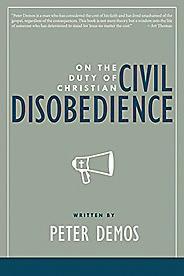 By Peter Demos
By Peter Demos
Peter Demos is a businessman, writer, podcaster, and public speaker. In his latest book, he uses a keen eye on biblical scripture coupled with numerous historical figures as a heady background to champion his mission. For Demos, facing the challenges of standing up for your faith in tumultuous times requires a firm commitment to your beliefs. Christians need to be bold as they weigh the risks, rewards, and righteous duty for civil disobedience when called to act.
FIVE STONE PRESS, 2021, 236 PAGES
This week, we feature a couple of fun romantic comedies: one about an elderly, lifelong bachelor and another about a quirky husband and wife.
Beth (Julia Louis-Dreyfus) and her husband, Don (Tobias Menzies), seem to have it all: a long-lasting marriage, successful careers, and a healthy passion for each other. However, when Beth discovers that Don’s “encouragement” of her work may not have been totally honest, their relationship becomes strained.
This is an interesting comedy about a major concern that many creative people have: How many of those close to us are being fake in their praise of our perceived talent? It’s a quick-witted jaunt into a very relatable subject.
COMEDY | DRAMA
Release Date: May 25, 2023 (Limited)
Director: Nicole Holofcener

Starring: Julia Louis-Dreyfus, Tobias Menzies, Michaela Watkins
Running Time: 1 hour, 33 minutes
MPAA Rating: R Where to Watch: Theaters
Lifelong bachelor Victor Martin (William Shatner) is a retired pilot with a penchant for ladies and fast cars. When he participates in a drag race that gets out of control, he loses his license and is forced to take the bus, where he meets café owner Caroline Summers (Jean Smart). Romance may be in the air. This is a whimsical romantic dramedy that takes place in beautiful Palm Springs, California. It’s an enjoyable watch that ticks all of
the feel-good boxes, and it’s great to see Shatner at nearly 90 years old playing such a fun role.
COMEDY | DRAMA | ROMANCE
Release Date: March 26, 2021
Director: Giorgio Serafini
Starring: William Shatner, Jean Smart, Don McManus
Running Time: 1 hour, 32 minutes
MPAA Rating: : Not Rated
Where to Watch: Showtime, Plex, Apple TV
Jack Martin (Danny Kaye) is an American entertainer who becomes popular on the French Riviera. But when he takes a job to

impersonate wealthy local magnate Henri Duran (also Kaye) while he’s away on business, things don’t quite go as planned. With bright colors,
exotic scenery, and lots of fancy dancing by the incomparable Danny Kaye and others, this enjoyable musical soars.

COMEDY | MUSICAL Release Date: May 1951
Director: Walter Lang
Starring: Danny Kaye, Gene Tierney, Corinne Calvet
Running Time: 1 hour, 29 minutes
Not Rated
Where to Watch: Amazon
After being embarrassed because of his height, 12-yearold Josh Baskin (David Moscow) is granted his wish by a fortune-telling machine and becomes an adult (Tom Hanks) overnight—but is still a kid inside. At first, it seems fun being a grown-up, but Josh eventually longs for the simplicity of being a kid again.
With excellent acting by Hanks, this comedy has some interesting insights into how kids and adults perceive the

world differently. It’s ultimately an uplifting film about cherishing one’s life.
COMEDY | DRAMA | FANTASY
Release Date: June 3, 1988
Director: Penny Marshall
Starring: Tom Hanks, Elizabeth Perkins, Robert Loggia

Running Time: 1 hour, 44 minutes
MPAA Rating: PG
Where to Watch:
DirecTV, Vudu, Redbox
 By Bill Lindsey
By Bill Lindsey
Often considered ‘just a dream,’ starting your own winery might be within reach
To a passIonate oenoph I le, making one’s own wine ranks high among life achievements but is often filed under “not likely to happen.” However, the good news is that this goal may be easier to attain than expected, as there are many options to consider that don’t require buying 1,000 acres of grapevines in Italy.
To start making wine, one must develop and then stick to a plan. But before the plan can be developed, there are questions to be answered that will help shape the overall project. The most important thing to decide is the volume of wine desired, followed by how much time and capital can be allocated to the project. If the answers are something along the lines of, “a few cases for personal consumption” and “a few hours per week and maybe a few hundred dollars,” the planning can then move forward. If the answers are “create a brand to be sold to wine lovers” and “as much time and money needed to make it a reality,” a very different plan will begin to take shape. The good news is there are no wrong answers—there are options for pretty much any level of commitment.
The most intense way to become a winemaker is to decide upon the
desired wine to be produced, acquire acreage, plant the crops to be used, and process the harvest. Of these factors, the crop is the most critical. Most wine is made from grapes, but other crops can be used, from peaches to watermelons and more, as well as berries and even rice. This allows prospective winemakers to ply their craft even if they aren’t located in France, California, upstate New York, or other traditional wine-making locales.
With the crop chosen, the next step is to make sure there is sufficient land to grow it. A rough rule of thumb calls for 20 pounds of grapes or fruit to produce each gallon of wine, so calculations must be run to determine how much land is required based on the typical yield of the chosen crop.
As a side note, those who have never attempted to grow crops might want to consider first working at an established vineyard in order to gain hands-on knowledge and also taking

Making wine is a timehonored process, in which some make only a few cases each year for their own enjoyment, while others operate large-scale businesses.

Those who want to be a winemaker but lack the time, vines, or knowledge to do so can arrange to have a winery handle all the steps required, bottling and labeling “their” wine.

Making one’s own wine to share with family and friends is a labor of love that can be the realization of a lifelong dream.

Most wine is made from grapes, but other crops, from peaches to watermelon and more, can be used.
Put your name on the bottle
advantage of expert information available from local, state, and federal agencies. The same goes for actually making wine—learning from someone well-versed in the process is a proven technique that can be applied to any pursuit. Acquiring a working vineyard is yet another option.
If growing the wine or fruit is not an option, there are other paths to becoming a winemaker. One is to buy grapes—or fruit—from a producer, and make the wine. This can be done by either leasing or owning a section of an established vineyard, having their personnel take care of everything up to and including the harvest, then taking delivery to make the wine. Winemakers can also simply buy the grapes. Yet another option comes in the form of a private label operation. In this process, the winemaker neither grows the crops nor makes and bottles the wine; a commercial winery does all the work, applying labels designed, created, and supplied by the “winemaker.” The resulting wines are sent to the winemaker to enjoy or distribute. This mostly hands-off process is the easiest way to become a winemaker, albeit at a relatively high cost per bottle. Because it requires no involvement in
the growing and production processes, the private label route is a practical way to create a custom brand, which is why many celebrities, restaurants, and retail merchants rely on it. The benefits include the ability to pick and choose the types of wine that will bear the label, changing it as desired. The downside is a lack of control over the finished product and potential negative reactions to the discovery that the winemaker didn’t actually make the wine.
Regardless of how the winemaker obtains the wine, the next decisions are how and by whom it will be enjoyed. In the United States, it’s legally permissible for an individual to make up to 100 gallons of wine per year for personal or family consumption or competitions and up to 200 gallons per year if there are two or more adults in the household.
However, none of it can be sold unless the maker has filed an application with the Alcohol and Tobacco Tax and Trade Bureau, has all the required permits from local and state agencies, pays all related taxes, and, if operating a winery, is registered with the Food and Drug Administration (FDA); be aware this is just a partial list of requirements.

Winemakers can either do all or most of the work. You can be involved in growing grapes and bottling the wine, or work with a winery that will custom-label “your” wine.
1 2
Grapes are an obvious choice, but wine can also be made from a wide variety of fruits, berries, and even rice, allowing makers from all over to use locally available ingredients.

If you plan to sell any wine you make or that bears your label, it’s a business, so make sure to obtain all required permits and approvals, and don’t forget to pay the tax man!


Summer’s almost here, so that means it’s time to dust off pool party manners to make sure everybody has a great time.
By Bill LindseyThe combination of water and splashing leads to slippery situations, making it important to literally tread carefully around the pool. If there are children present, enforce the rules of no running, no cannonballs, and no diving anywhere other than from the diving board. As you relax in the sunshine, keep an eye on others; if you notice someone struggling in the deep end, drop whatever you’re doing to offer assistance immediately.
Resist the urge to play DJ by playing your portable sound system loudly; many come to the pool to relax, and there’s no need to impose your musical preference on them. Consider who will be present when you choose your swimsuit; even if you look amazing in a daring bikini or, for guys, in a Speedo, it isn’t appropriate for a familyoriented affair.
If the pool has an adjacent gazebo with a grill, refrigerator, and casual dining area, use it to enjoy snacks and beverages, but make sure to avoid anything in glass bottles. Don’t eat or drink while seated on the edge of the pool or on a chaise longue and definitely not while in the pool. That being said, make sure to stay hydrated and that others do the same while swimming and spending time in the sunshine.
If there are children present, keep an eye on them, especially if they’re yours but even if they aren’t. A pool party isn’t day care, so don’t simply turn your kids loose to splash and play while you dive into a book. You don’t have to assume the duties of a lifeguard, but by exercising situational awareness, it’s more likely that you’ll notice if a child needs help or needs to slow their roll.
Using a thick, plush towel to dry off after swimming is a pleasure, so make sure to bring one for yourself and one for each of your family members in attendance. “Borrowing” someone else’s towel is rude, so don’t do it. The same goes for sunscreen and water—bring your own supplies, but be gracious and share with others who aren’t as well prepared.
